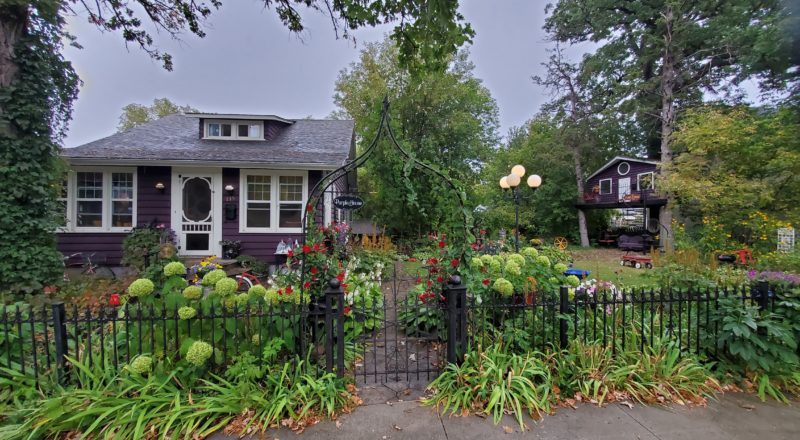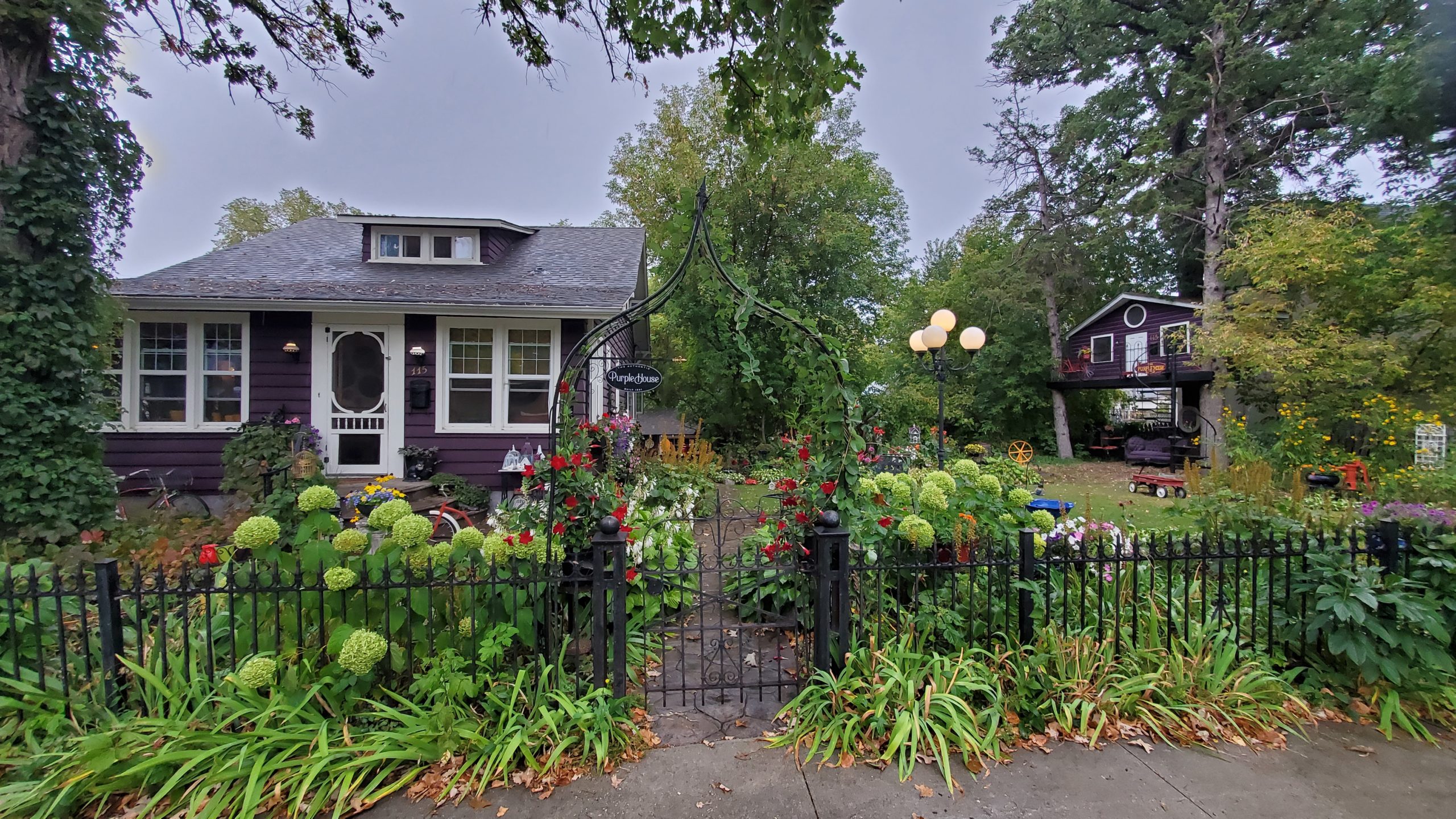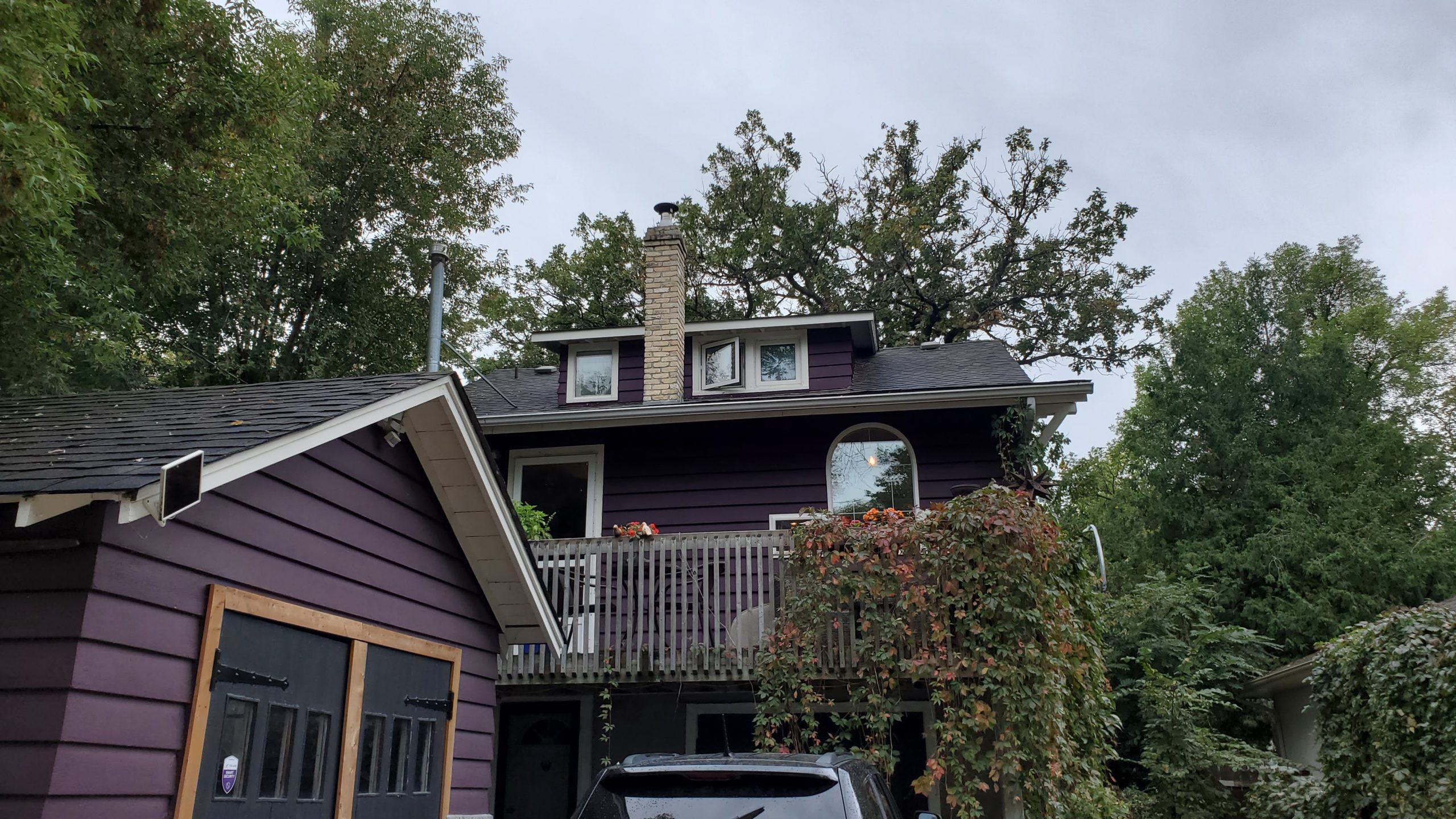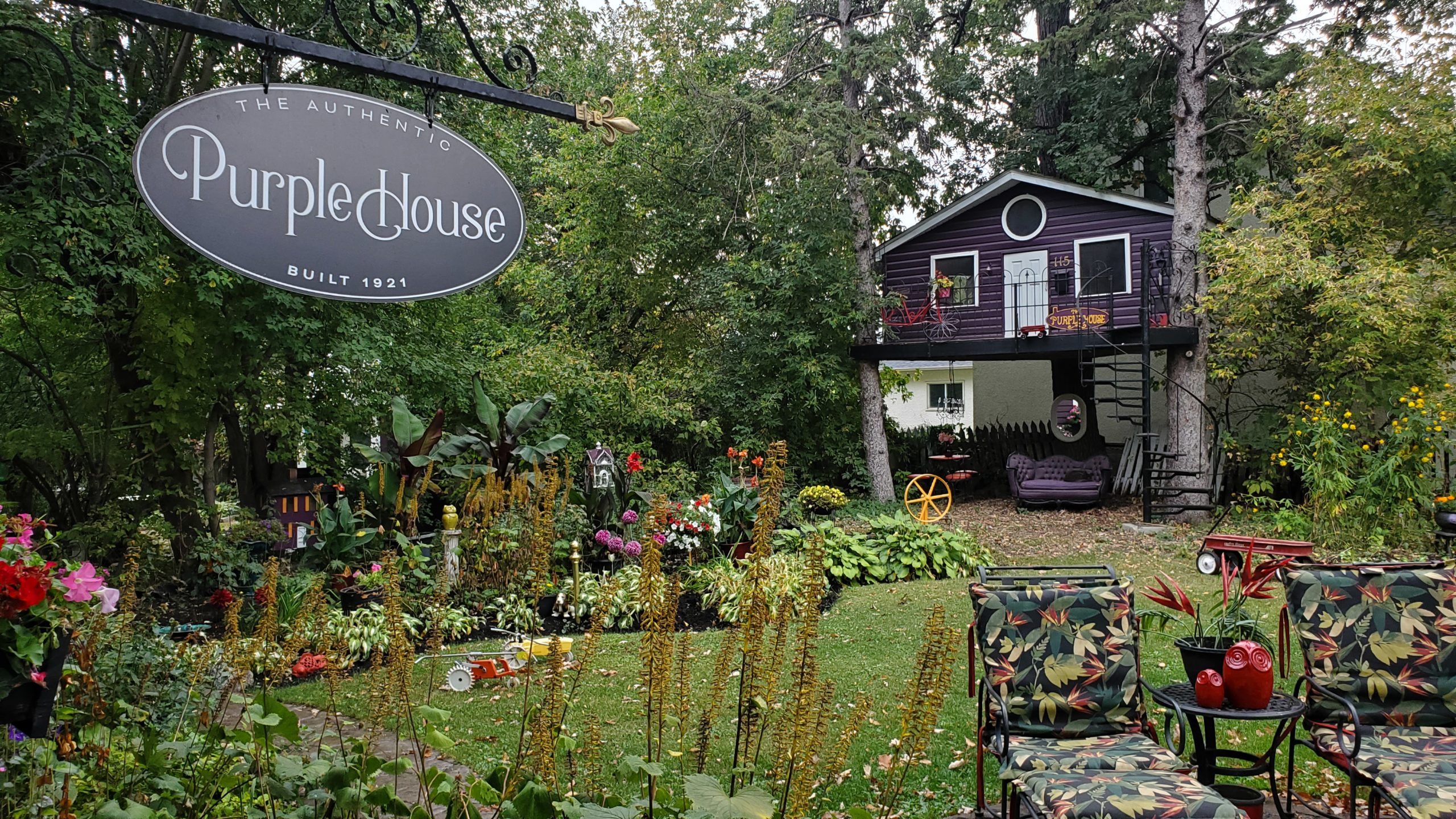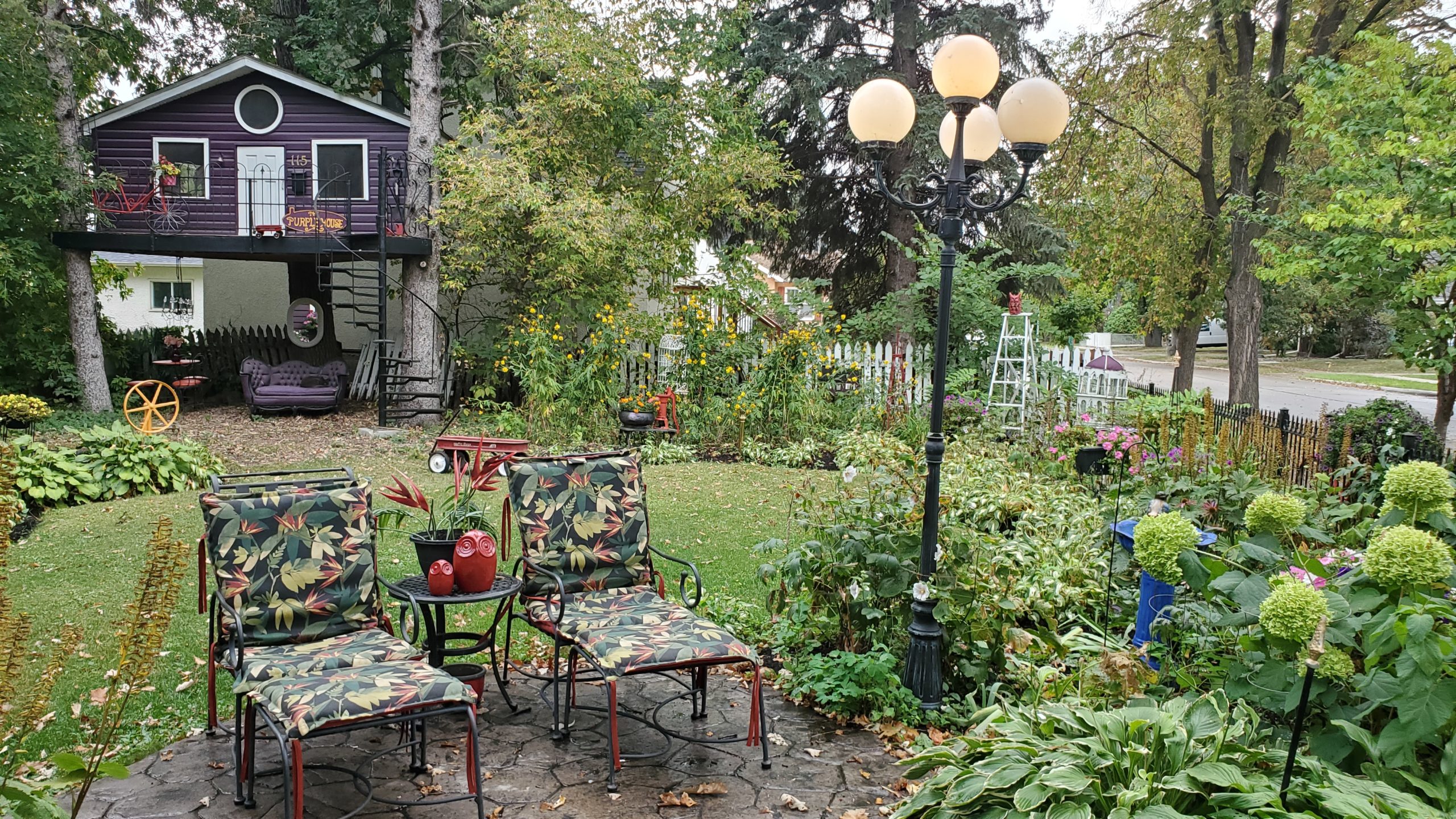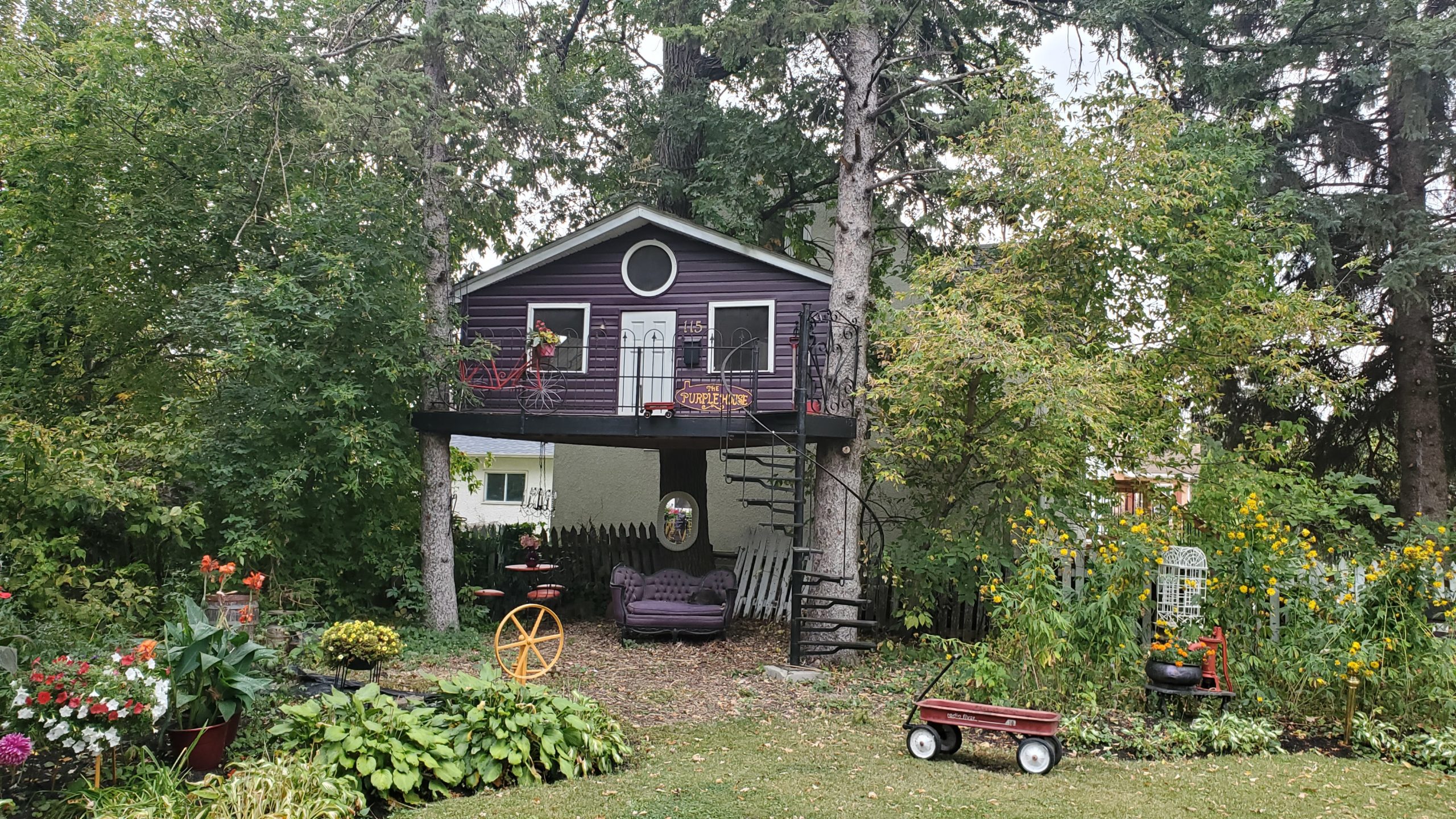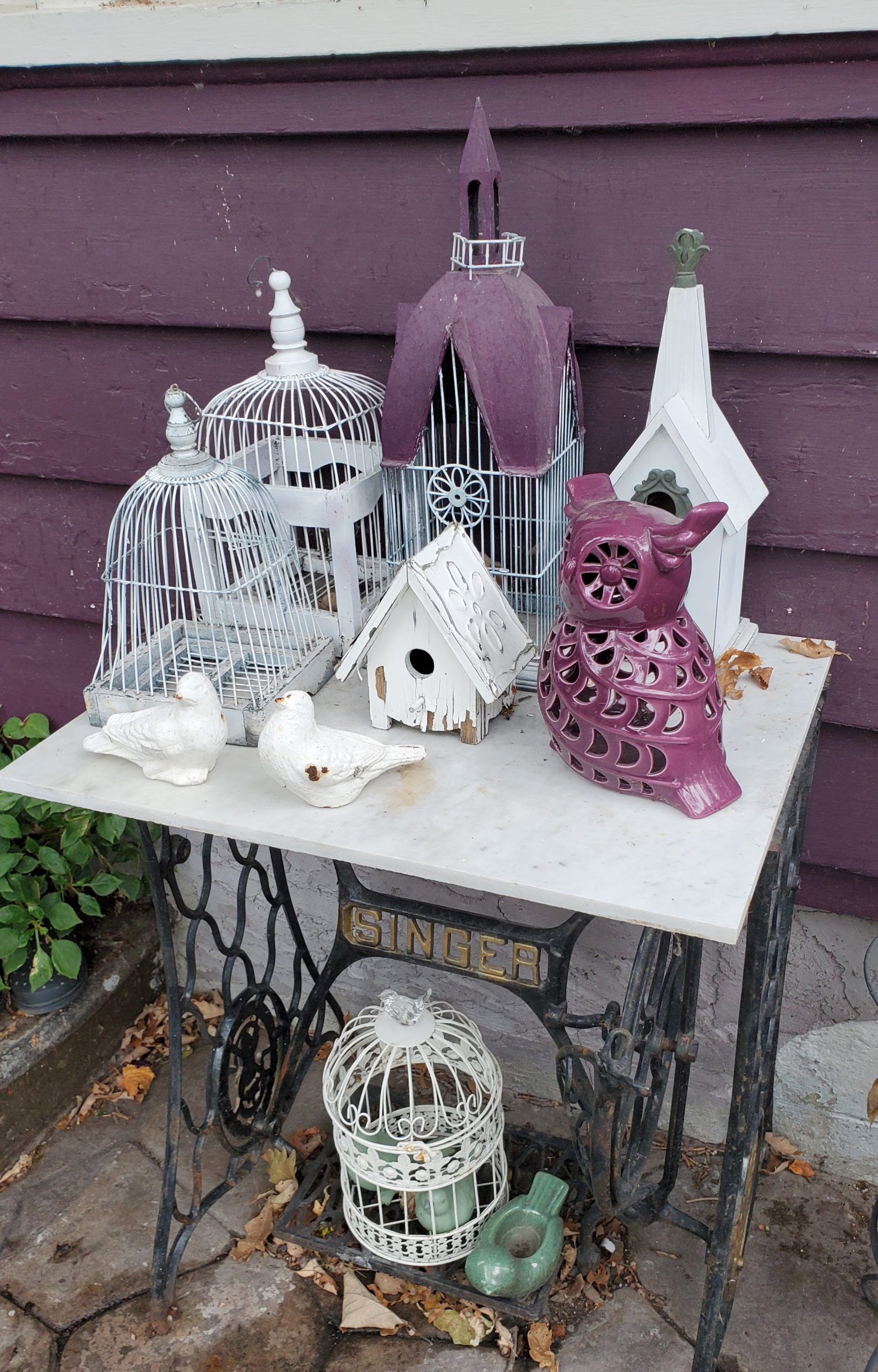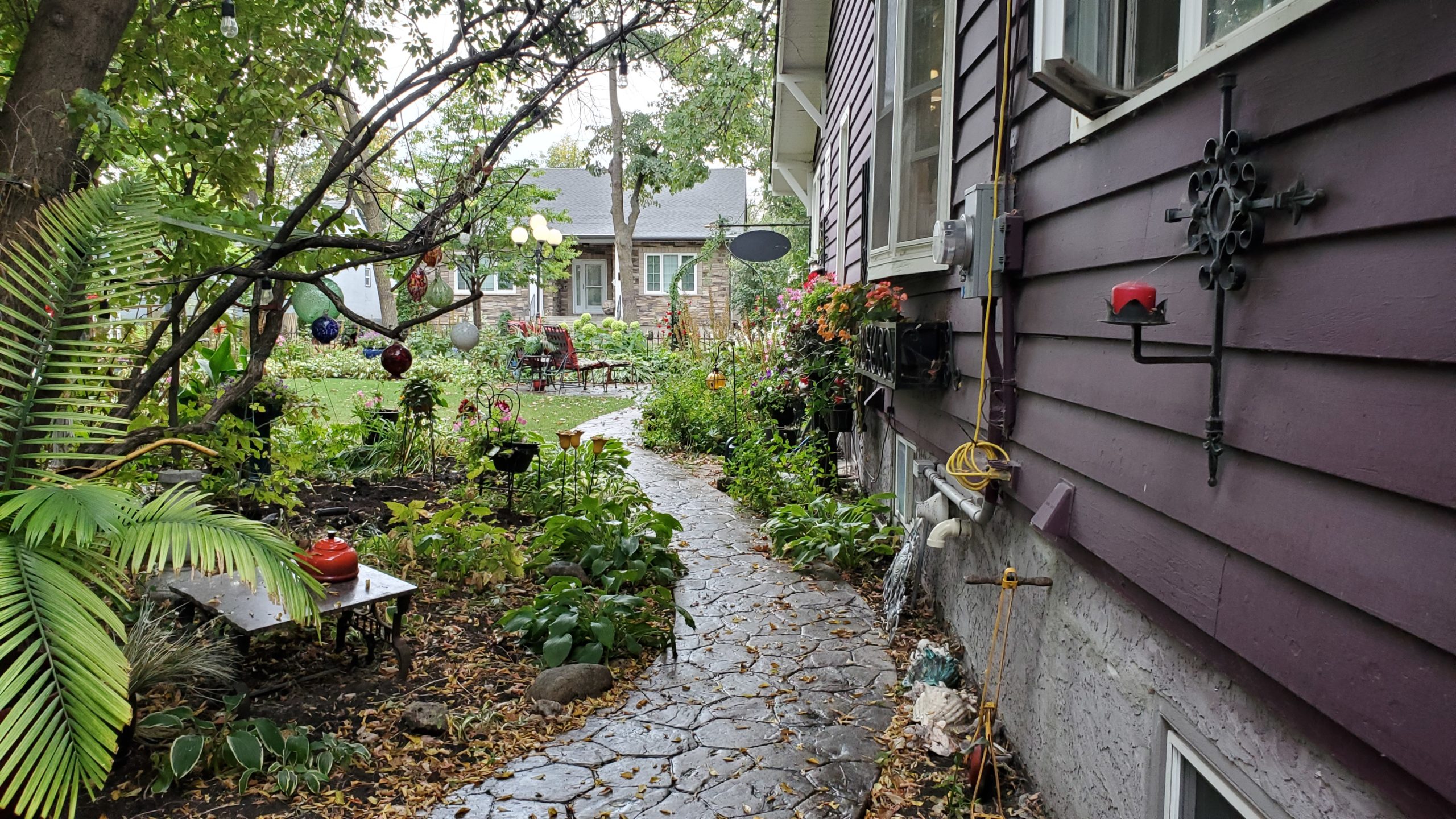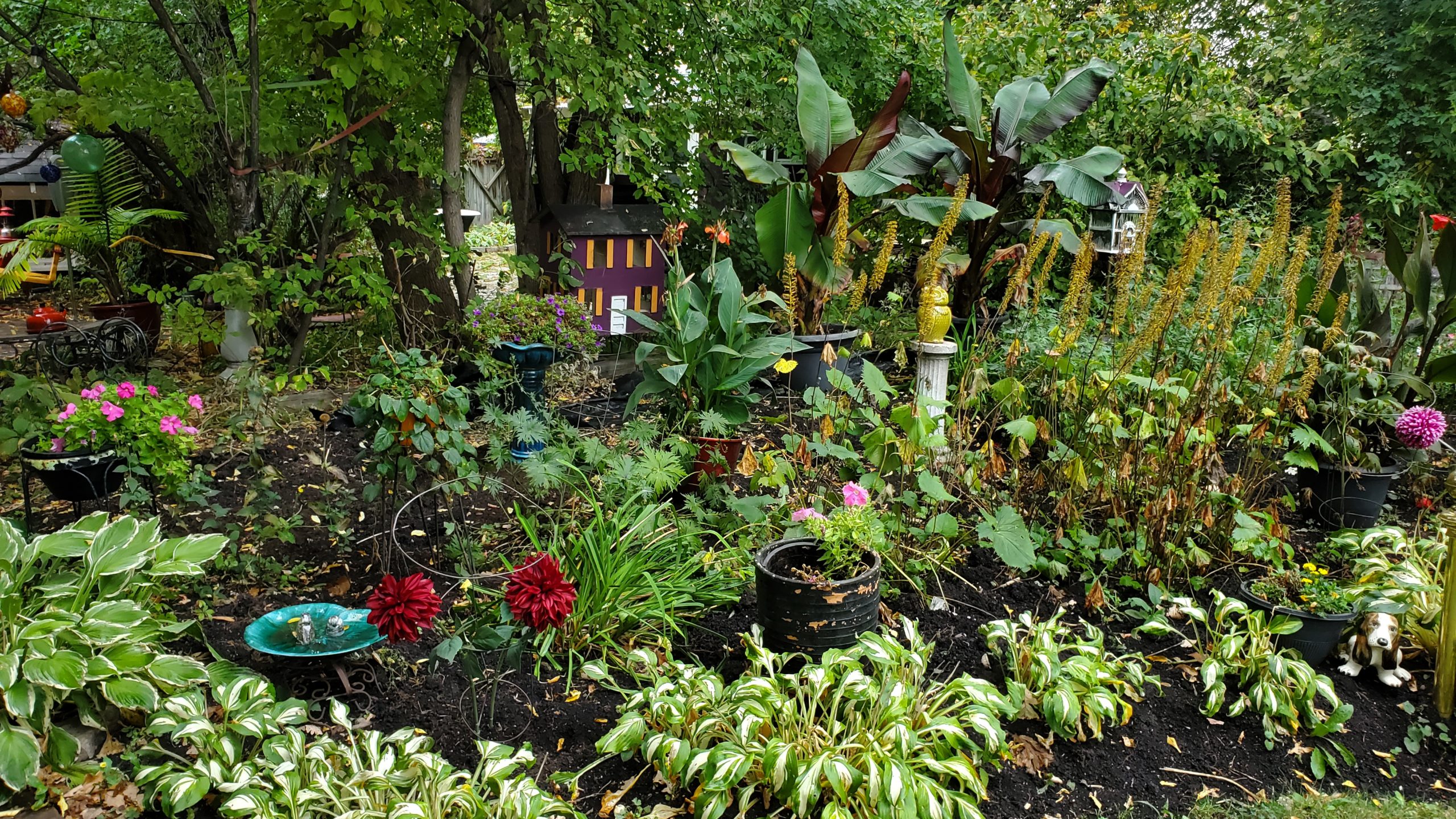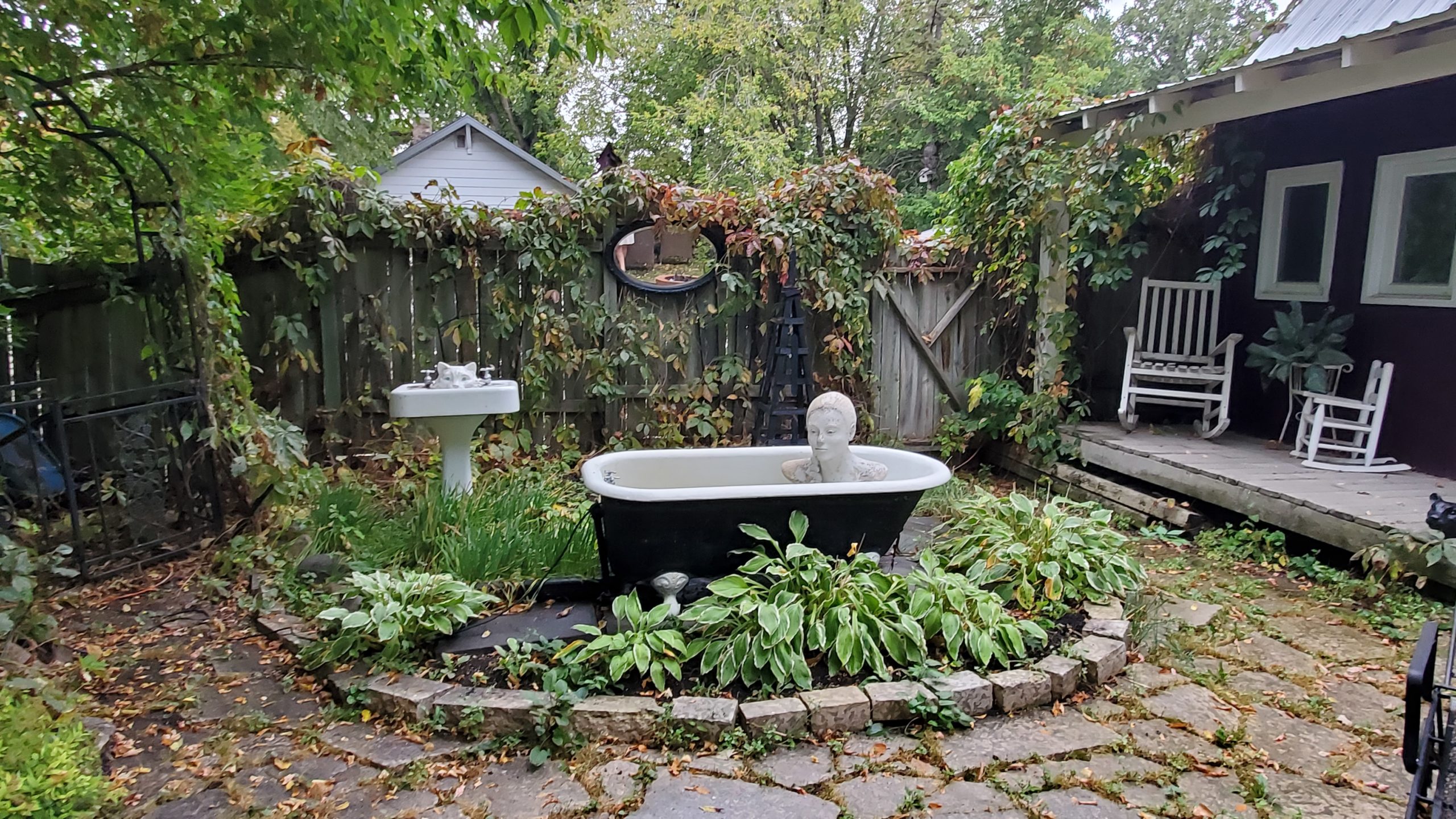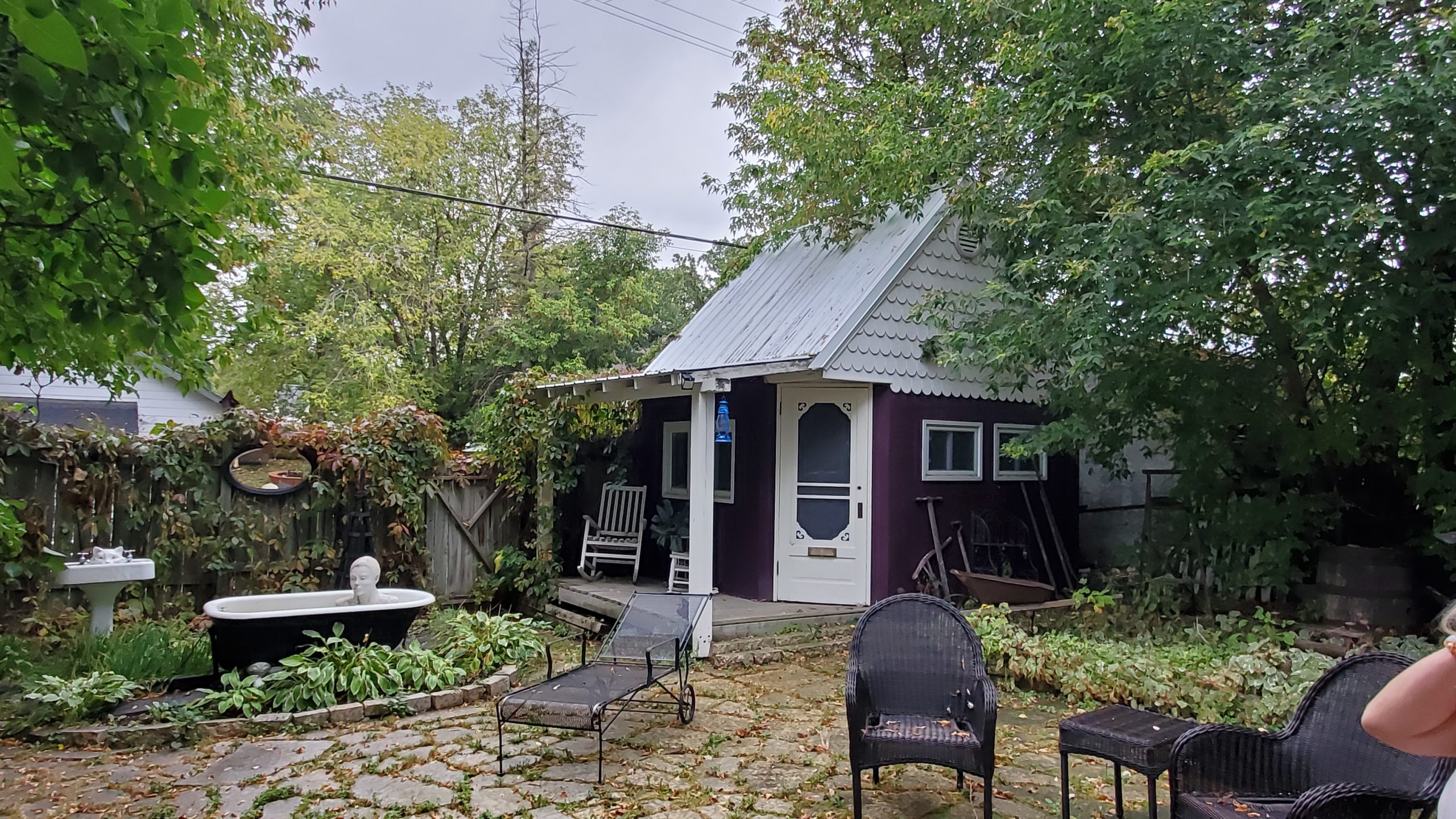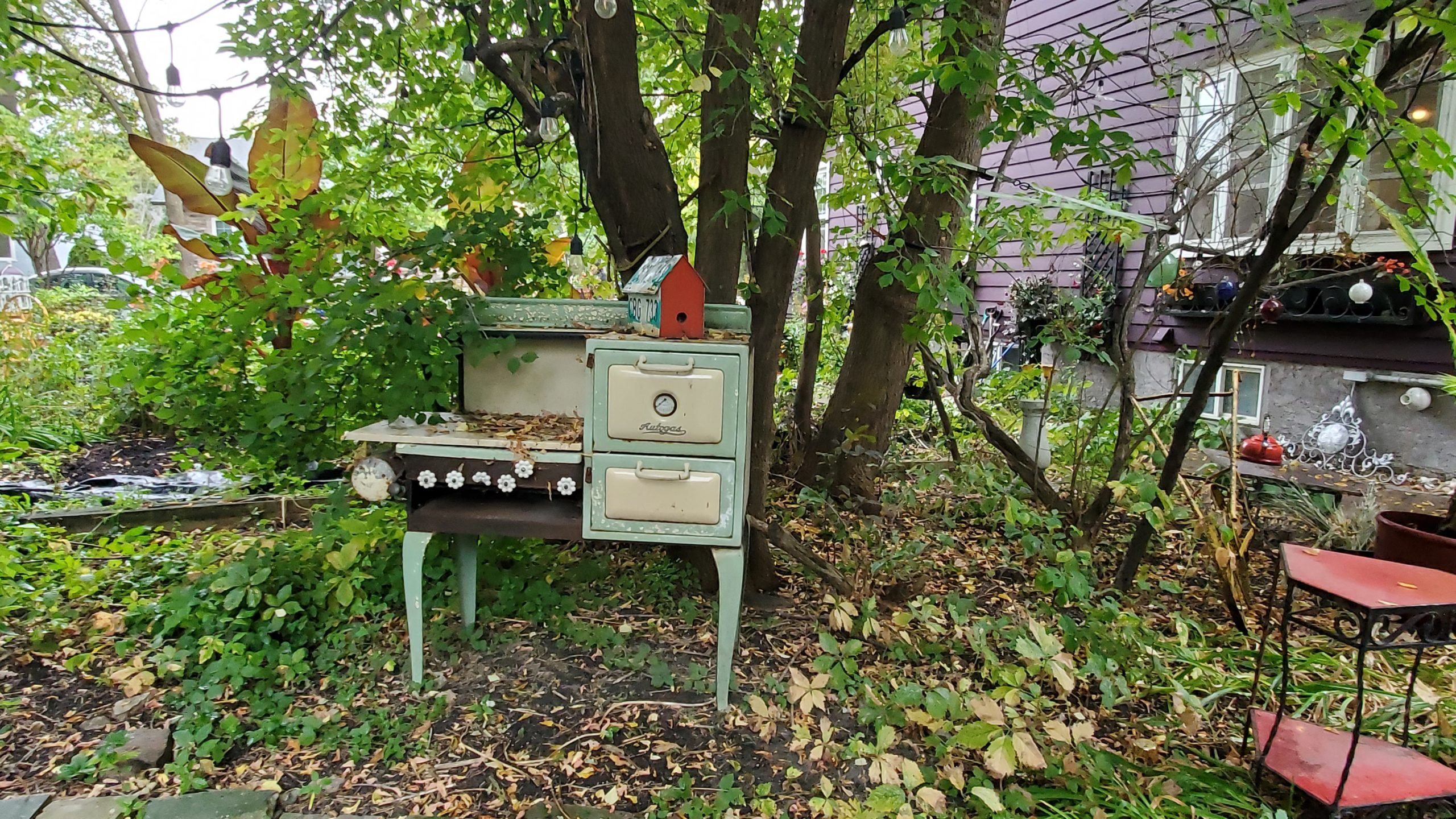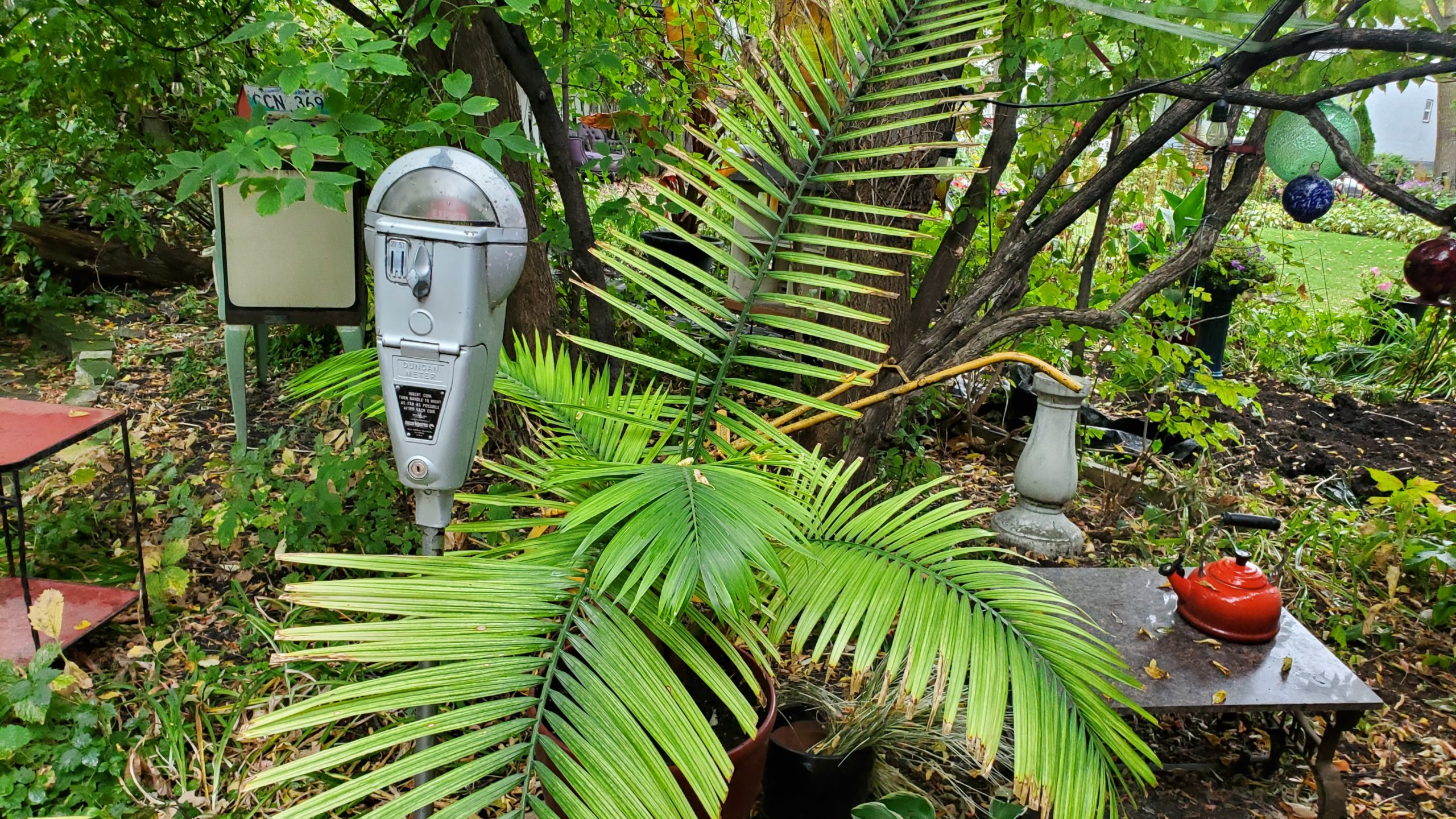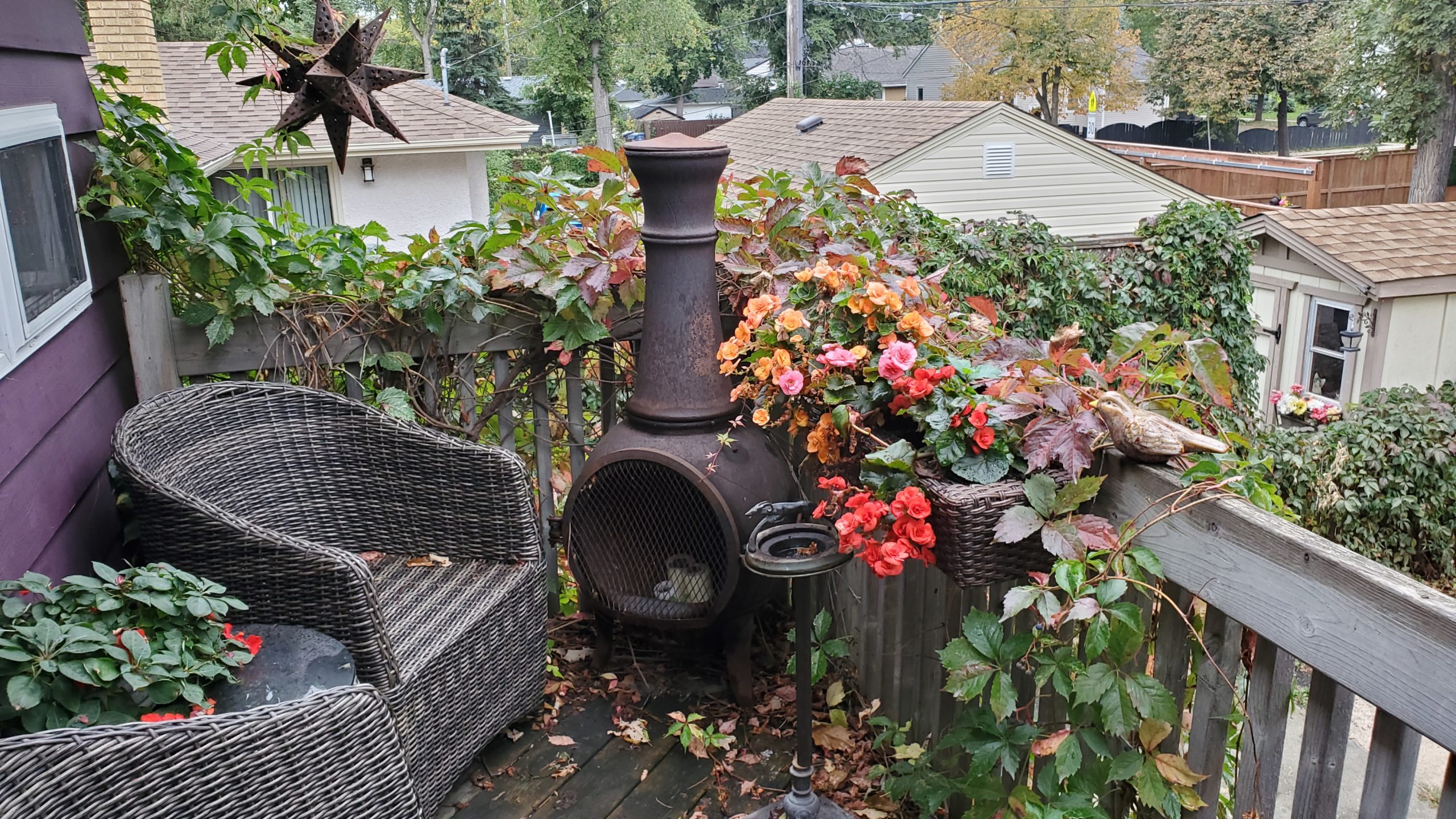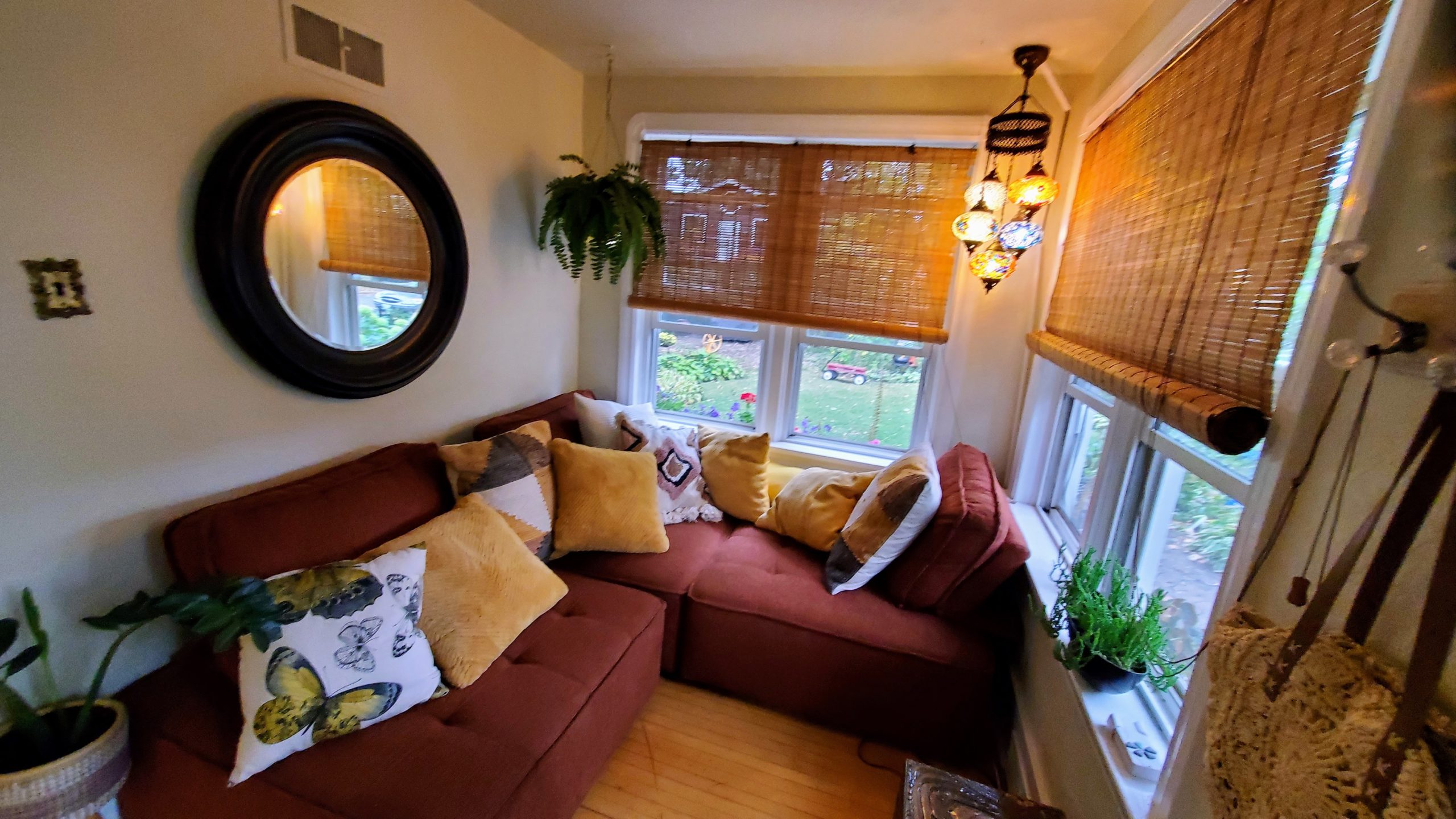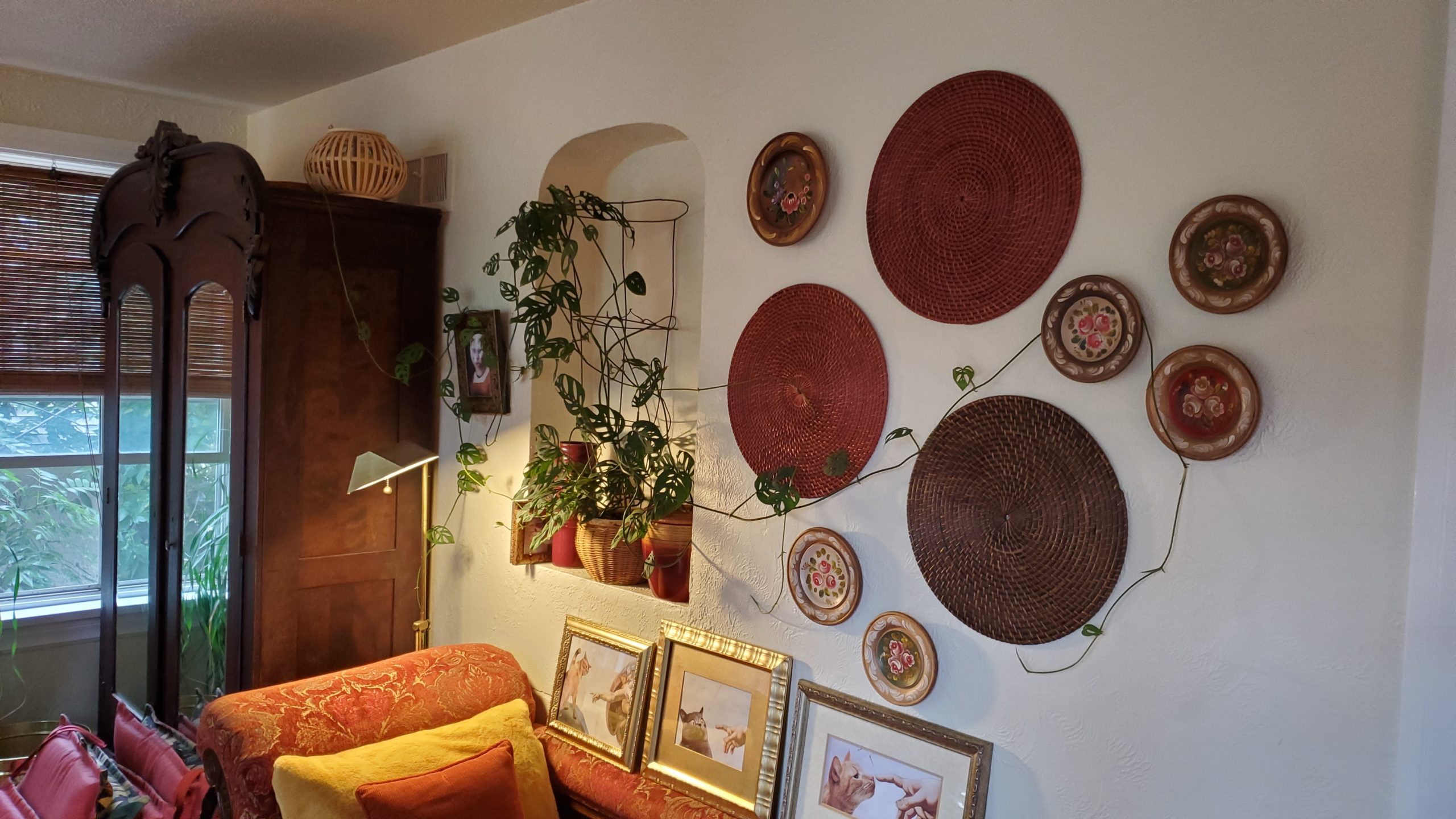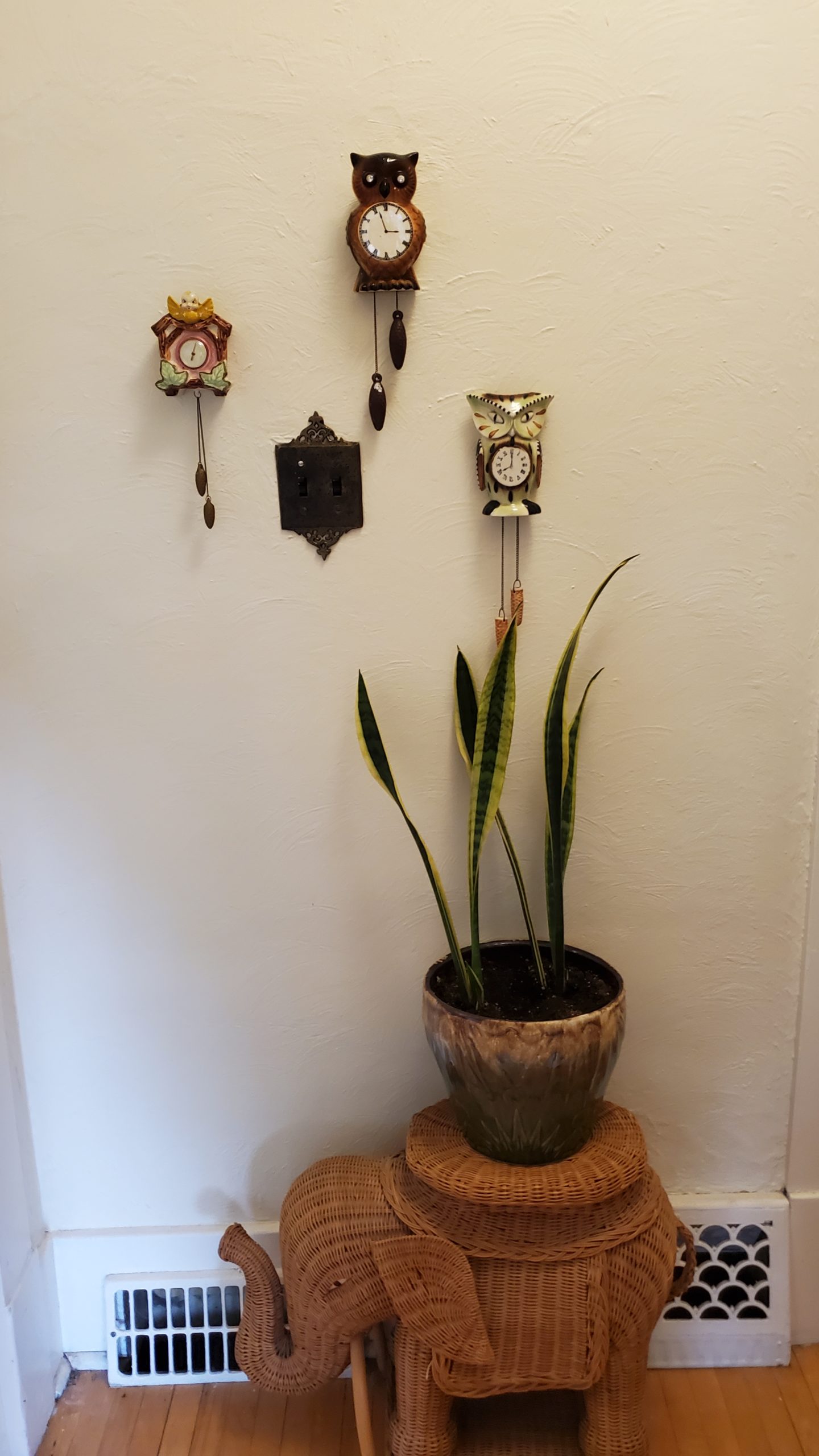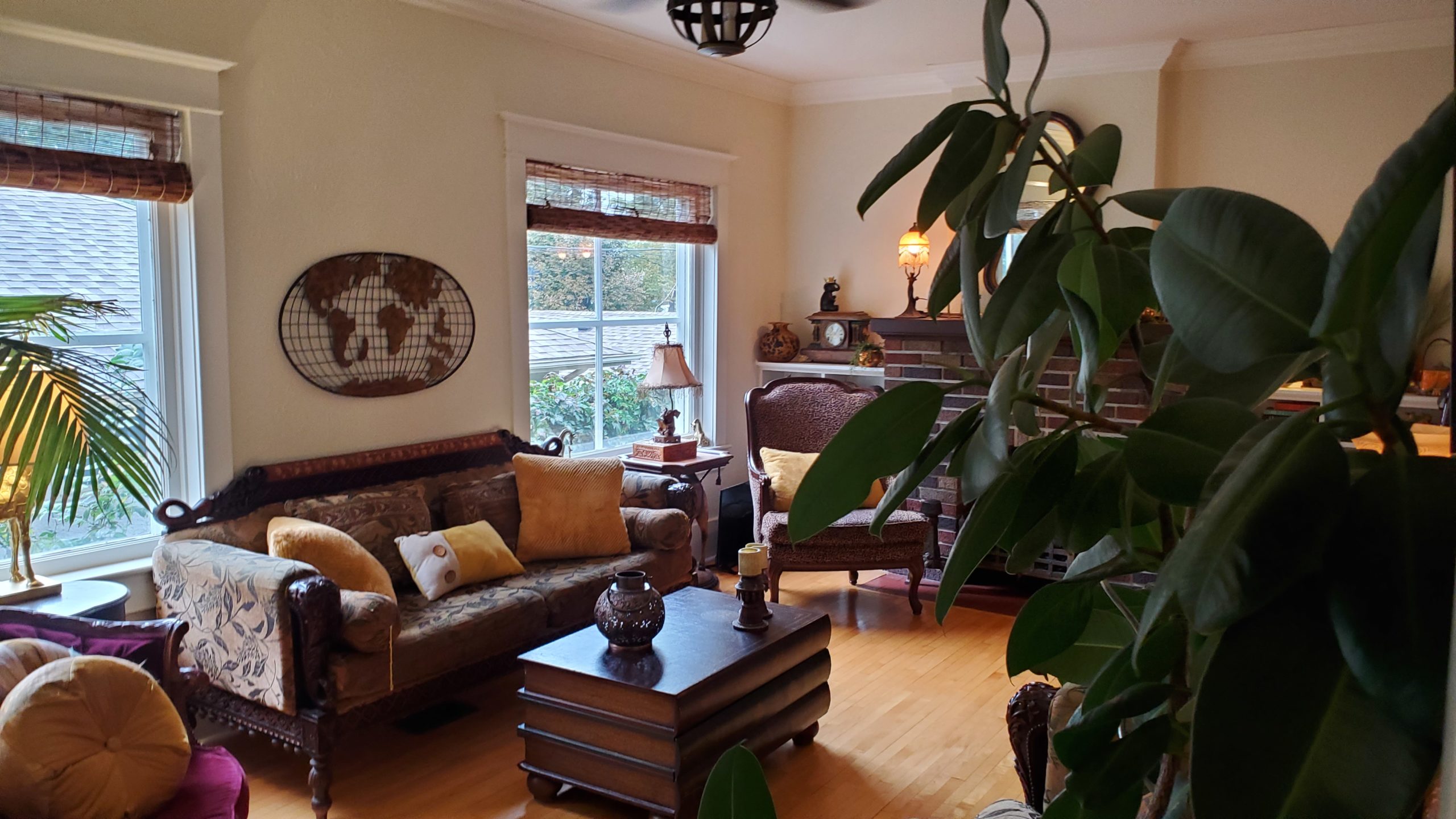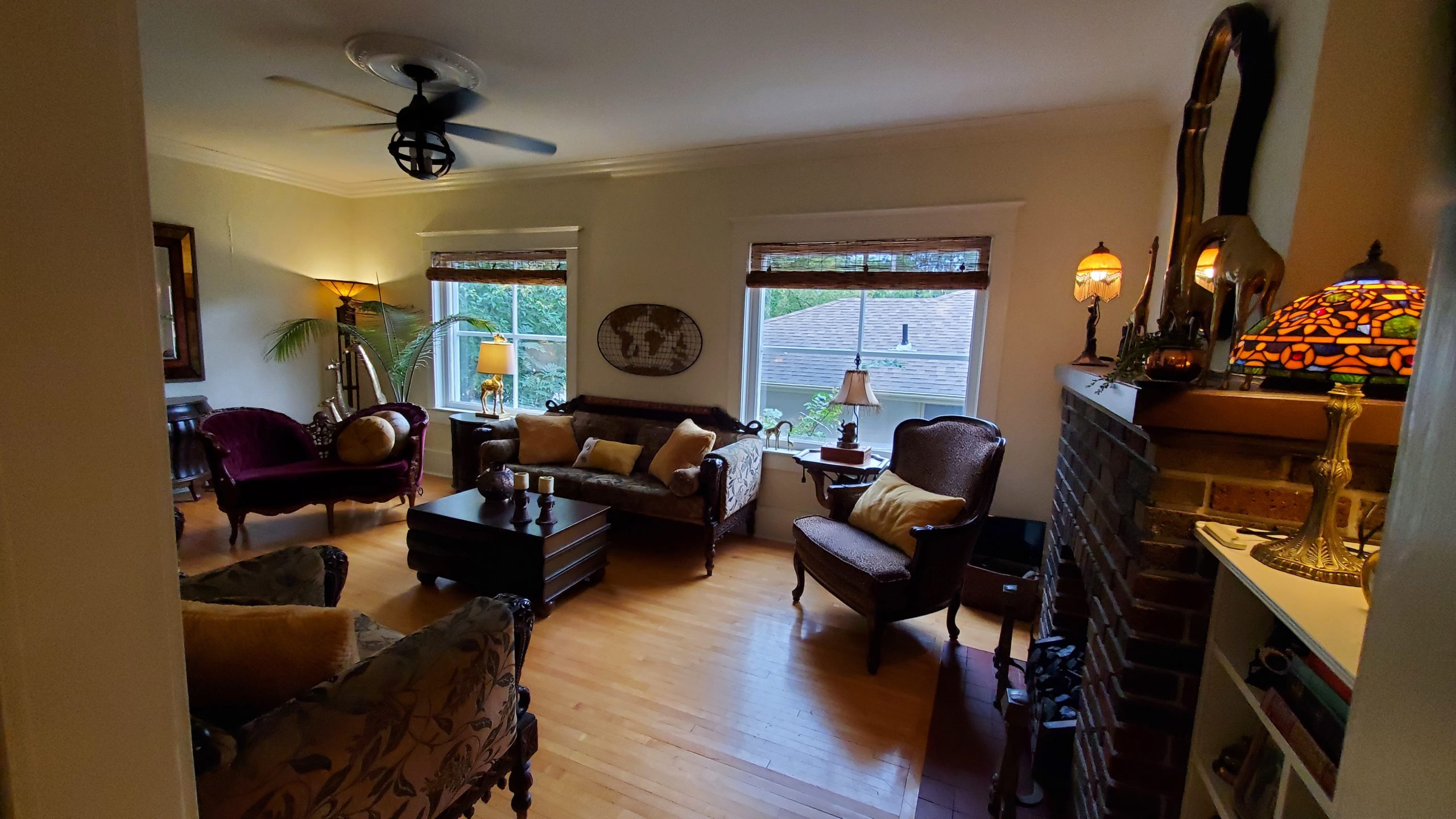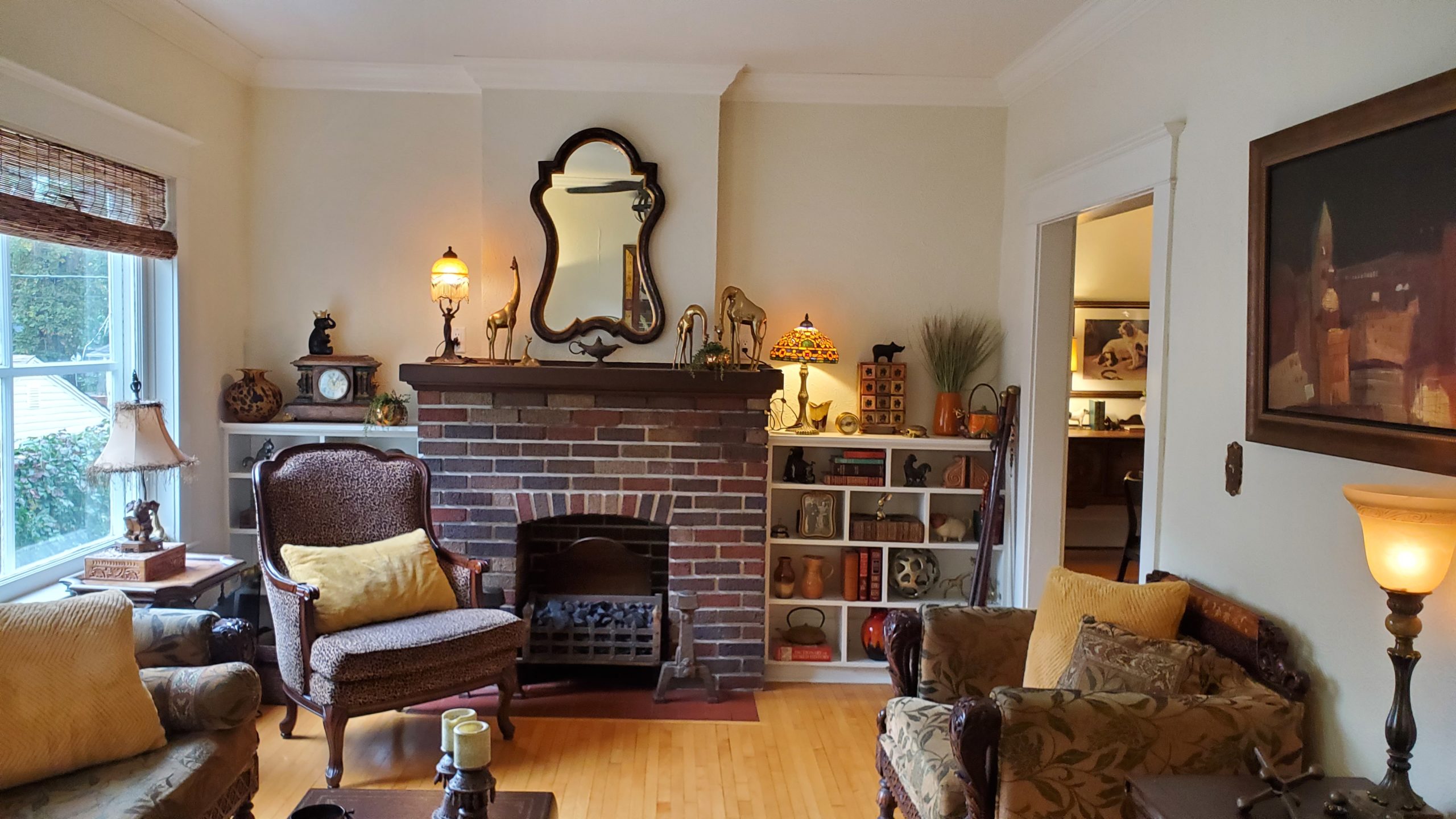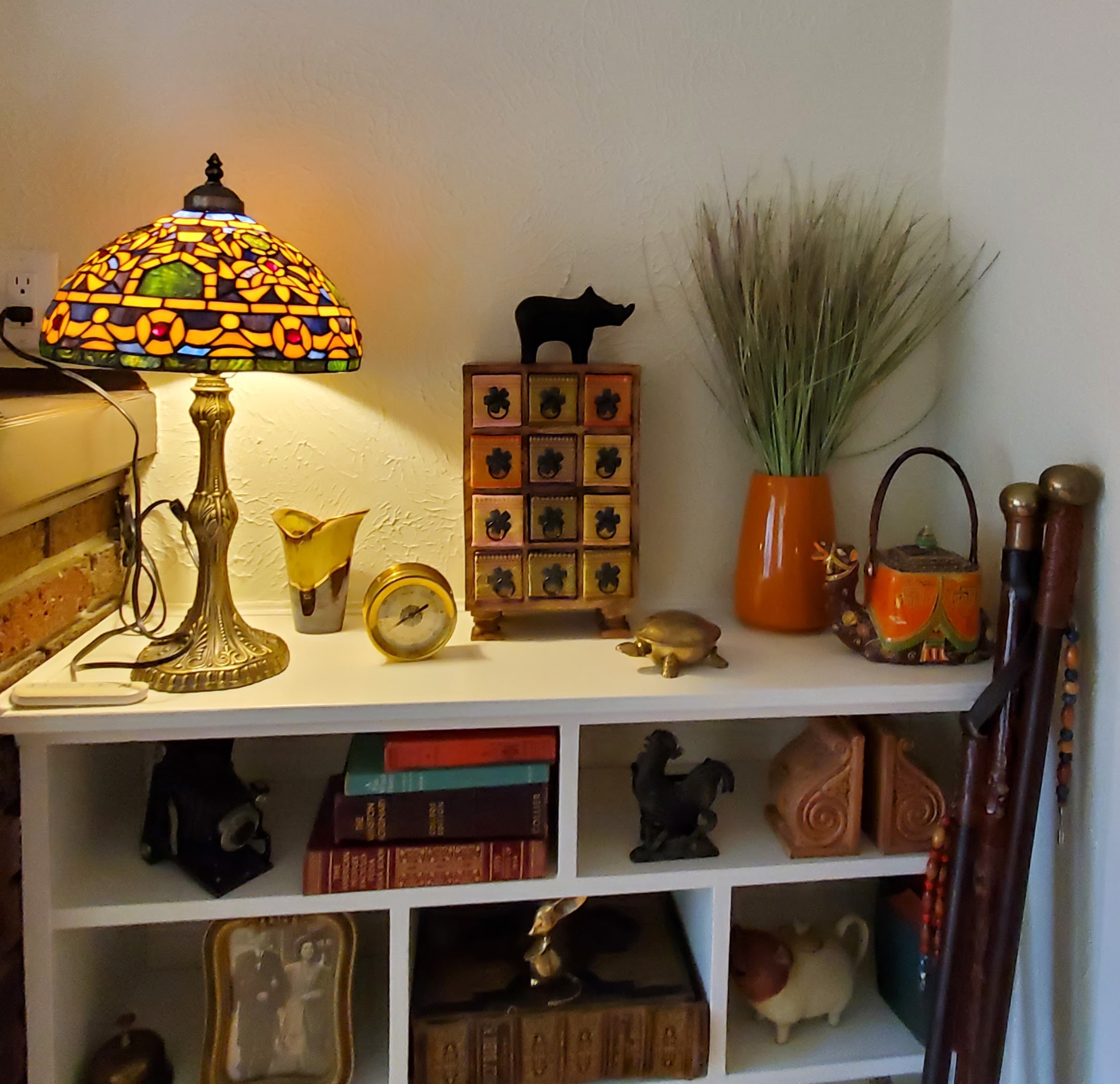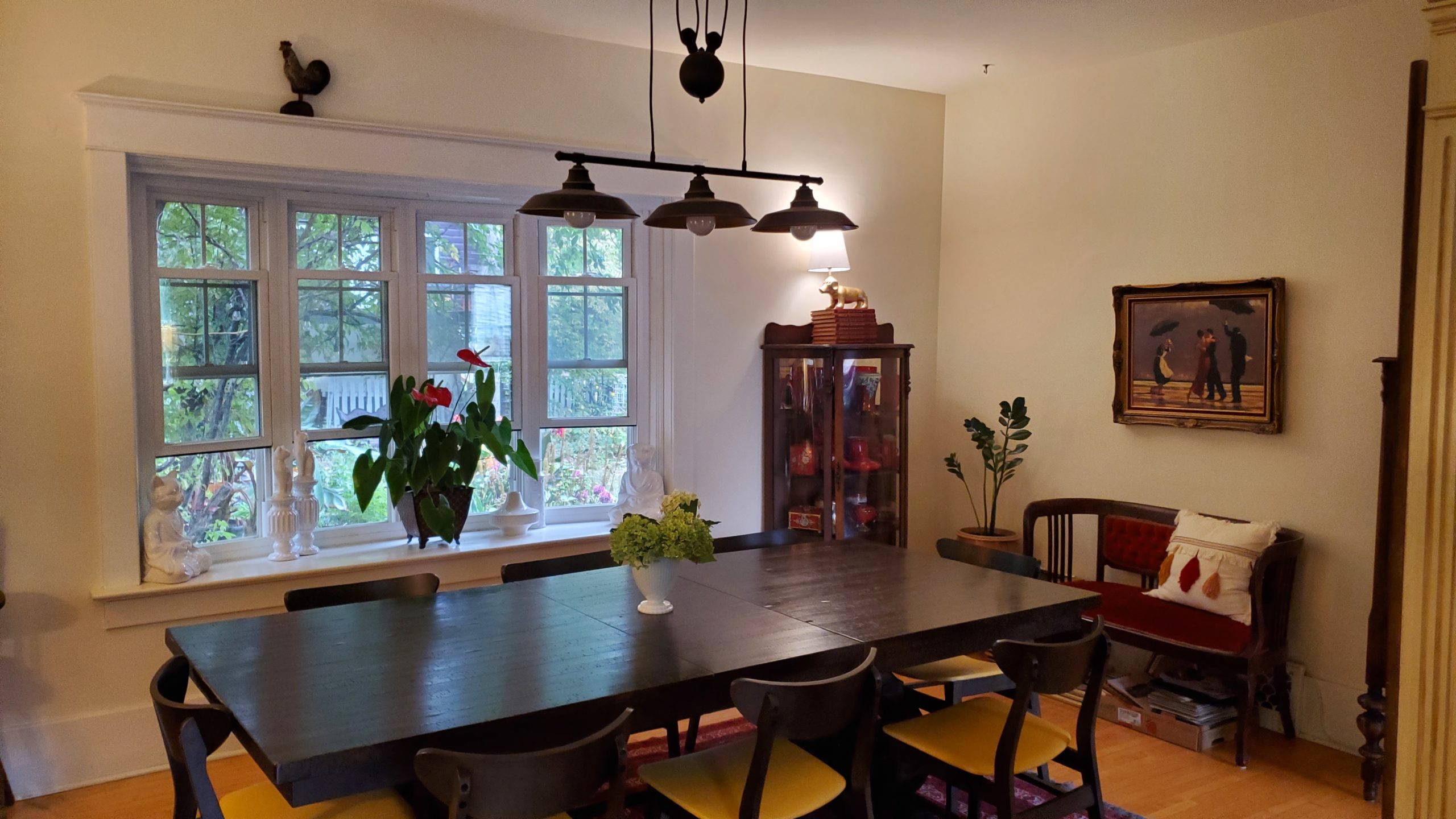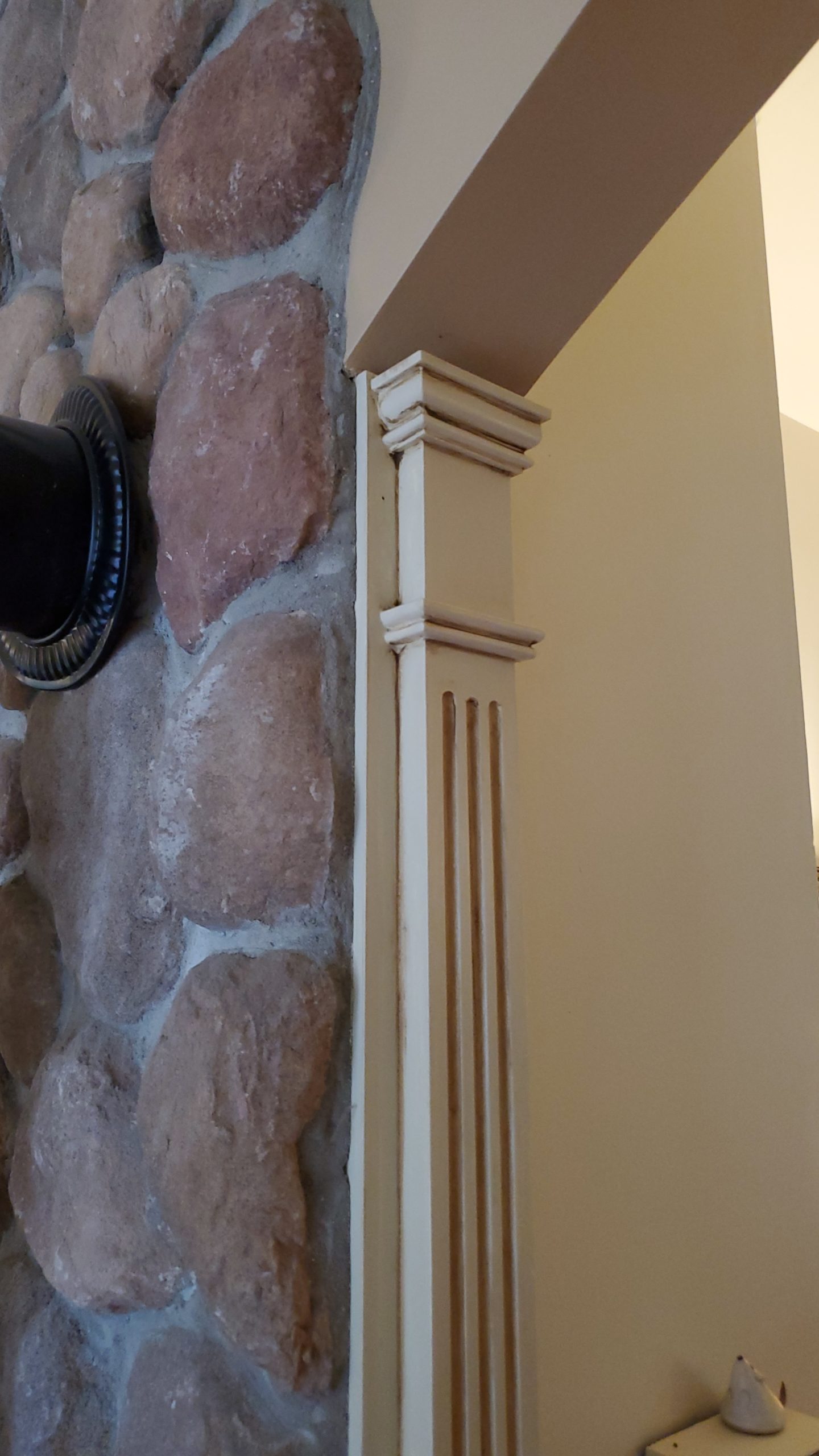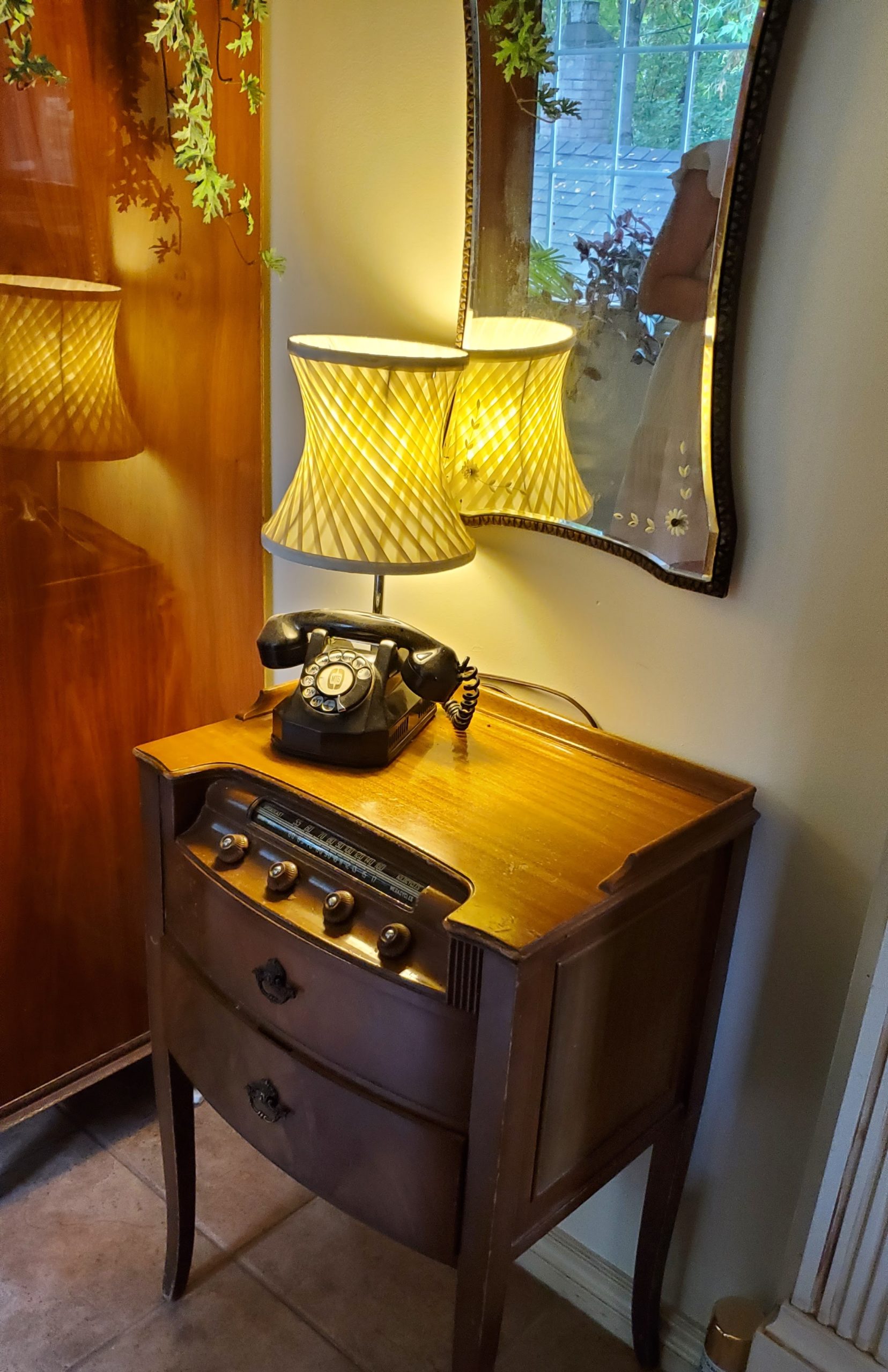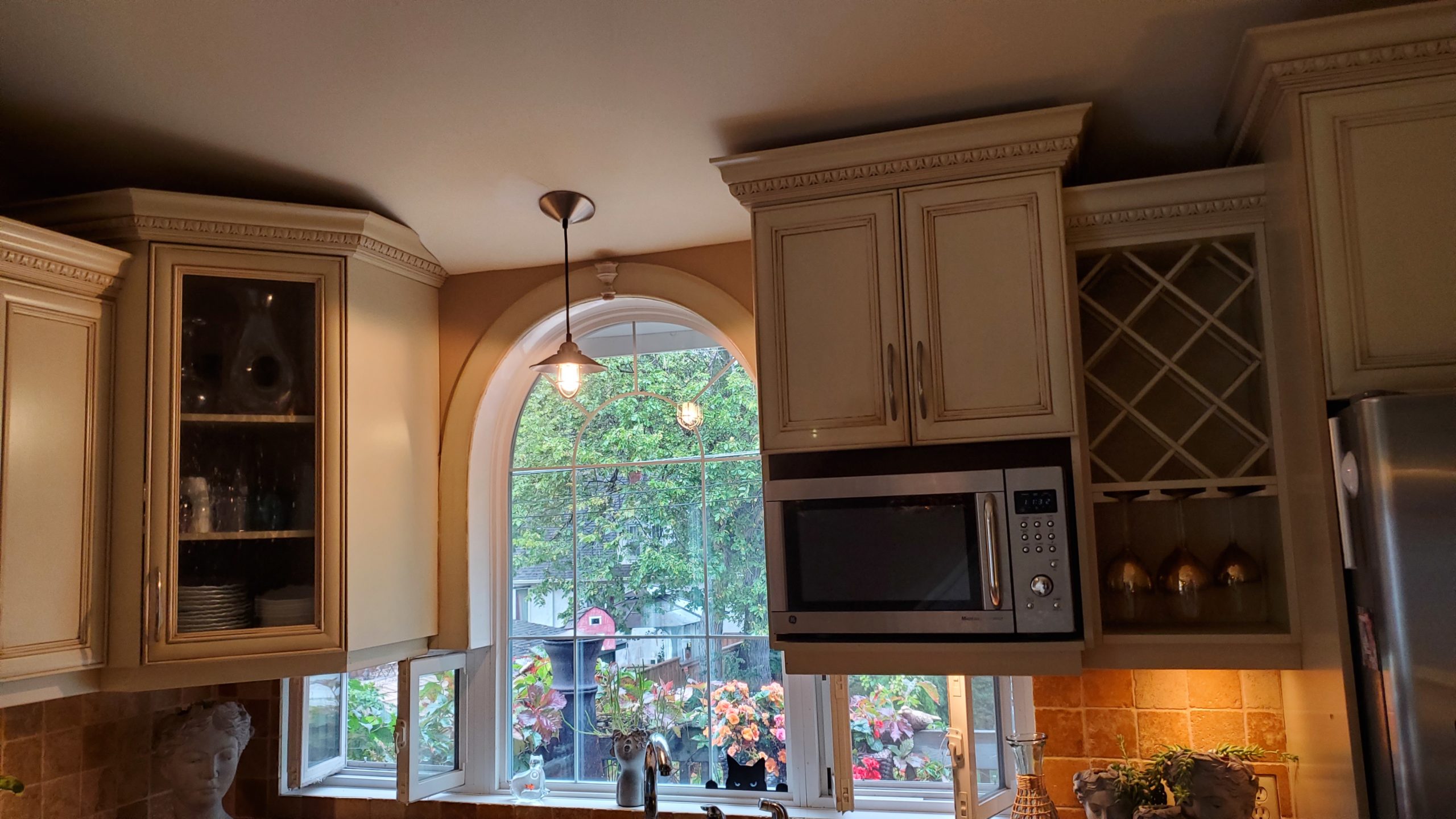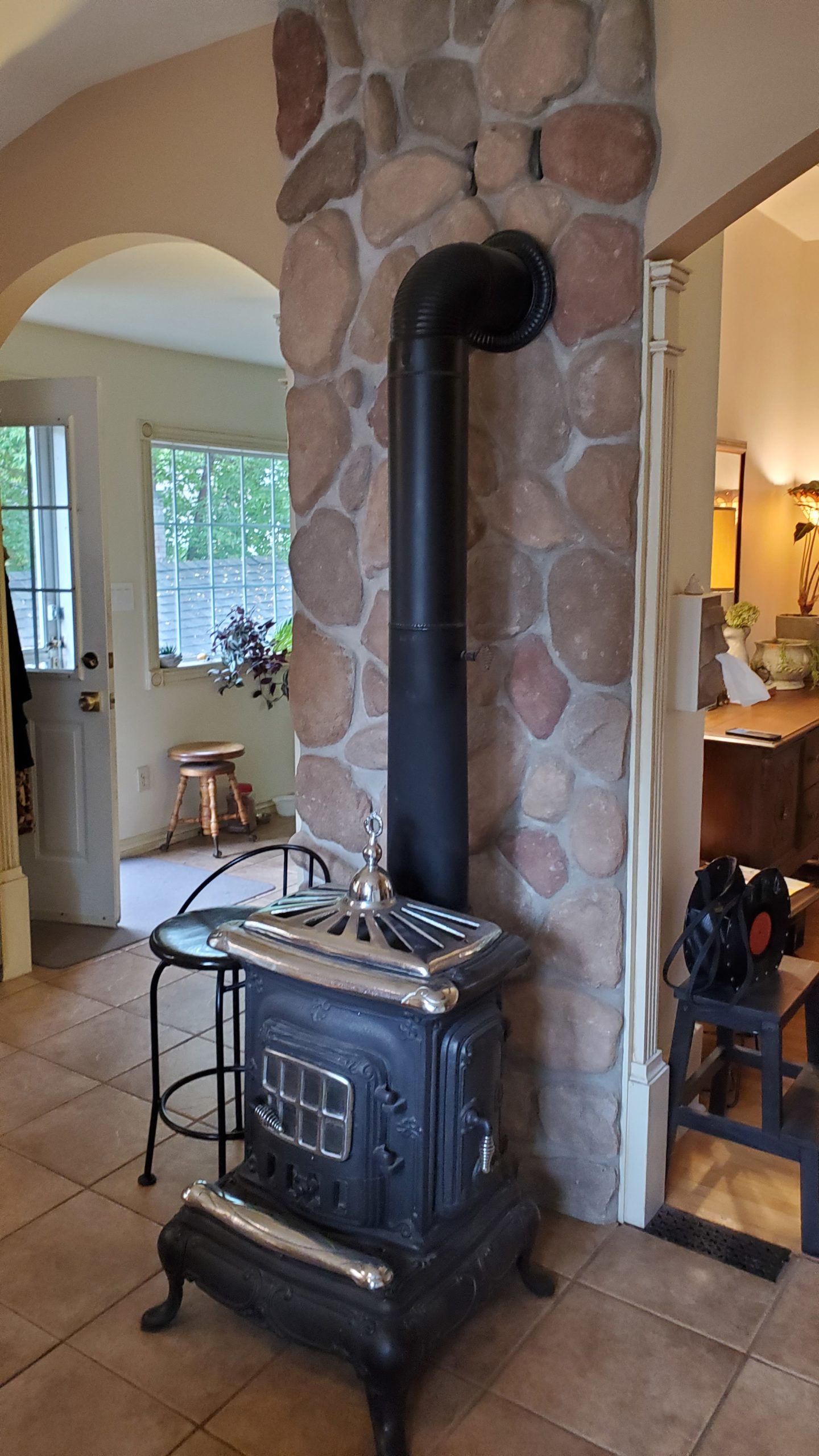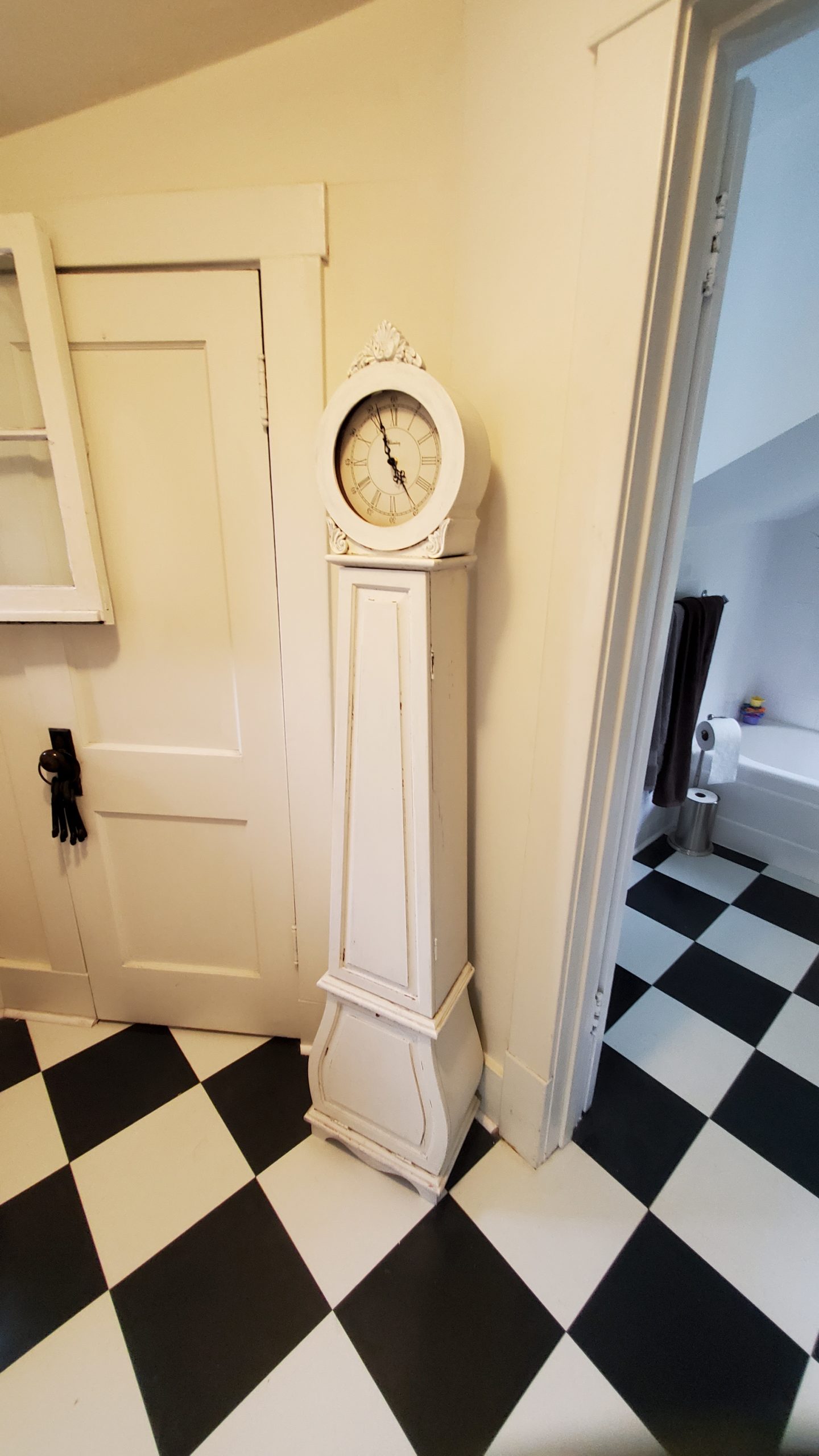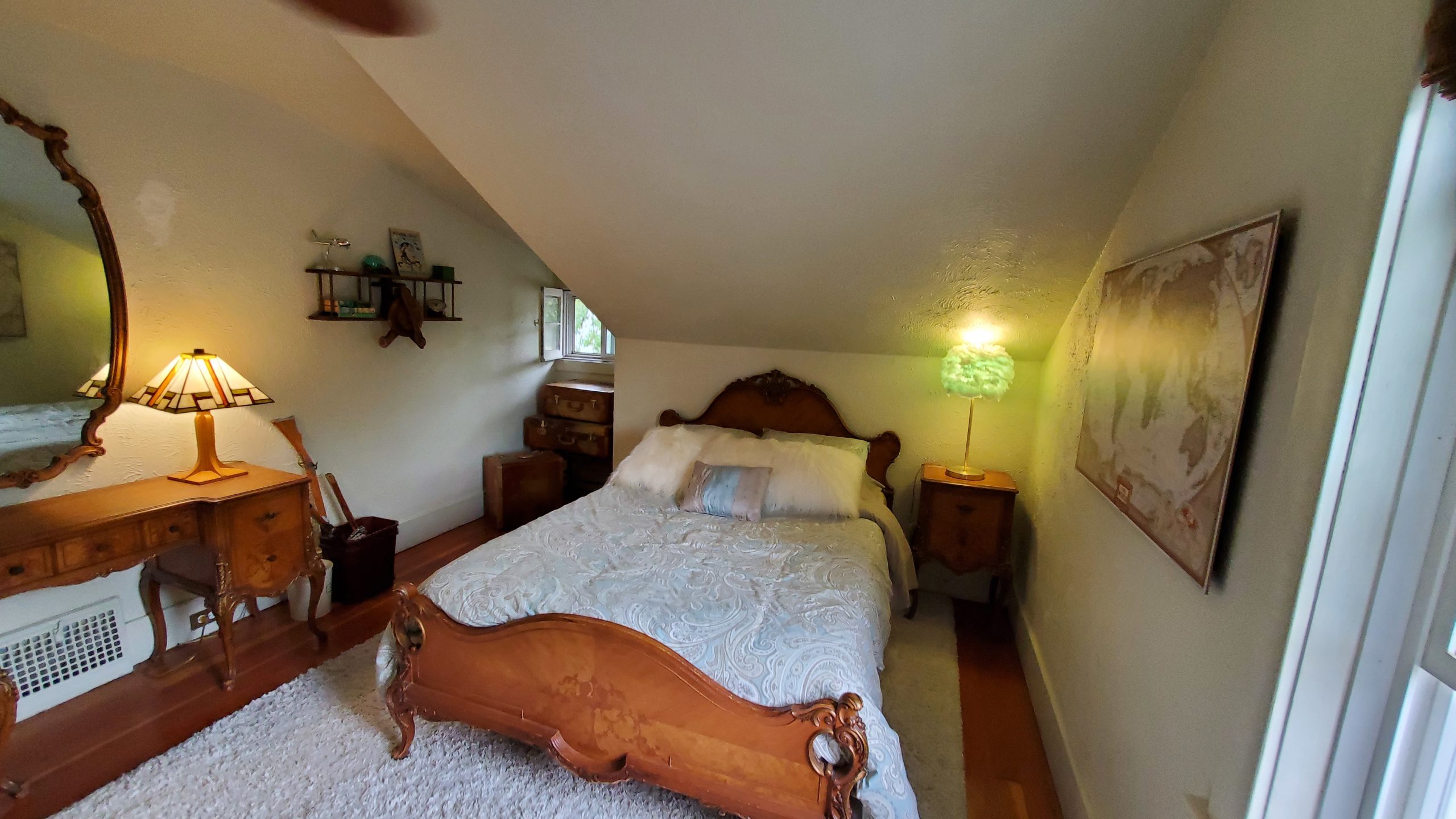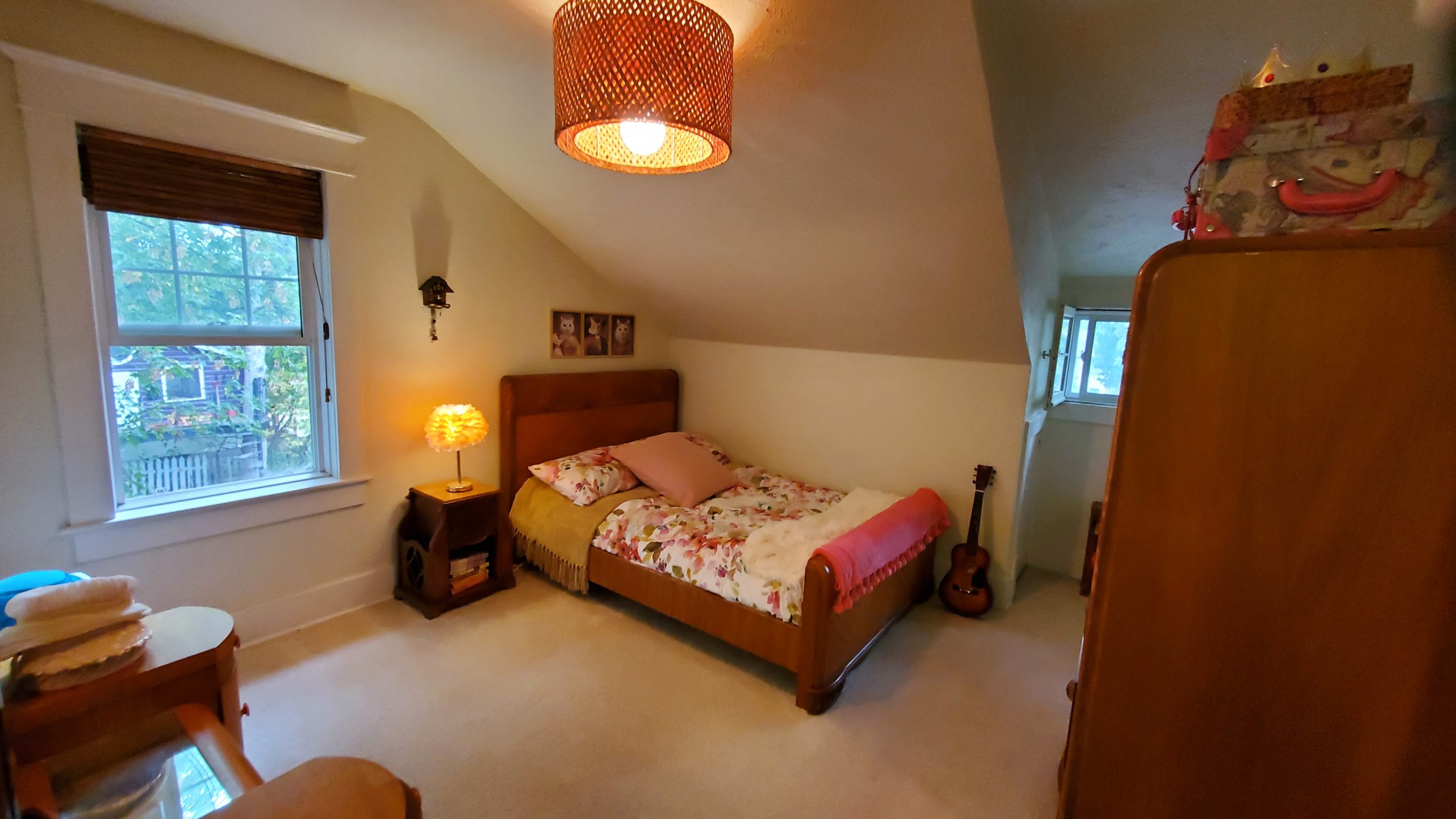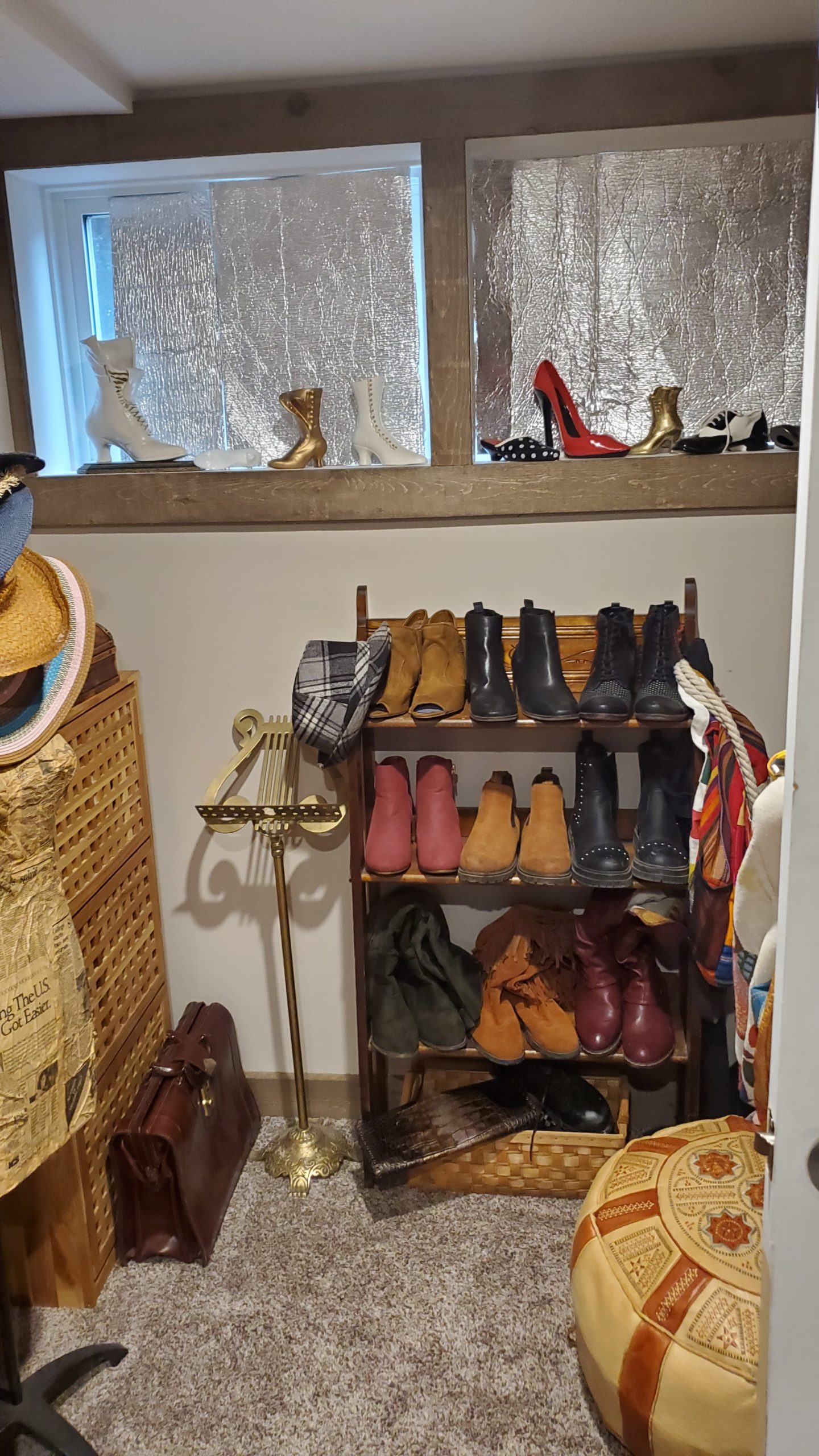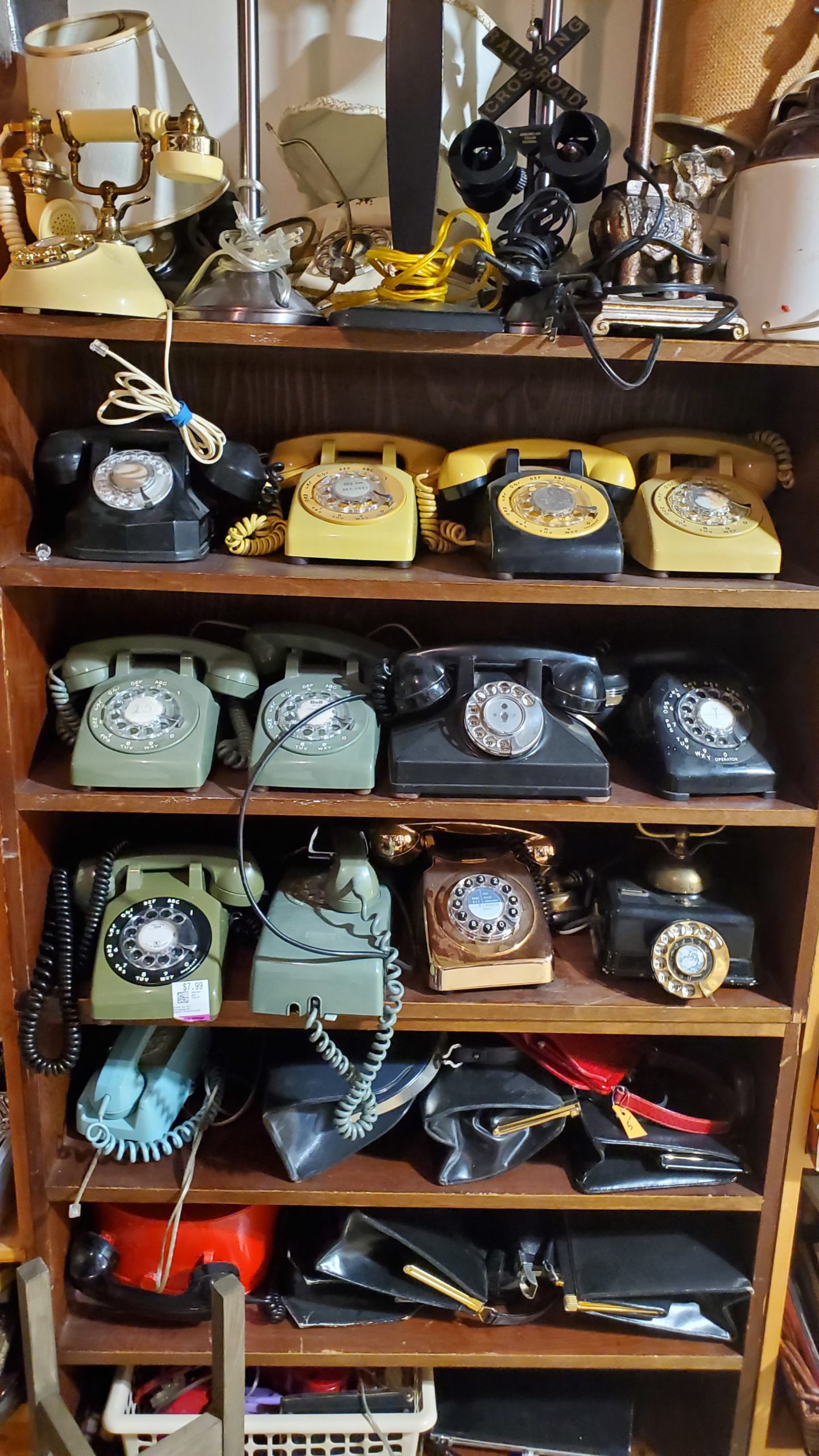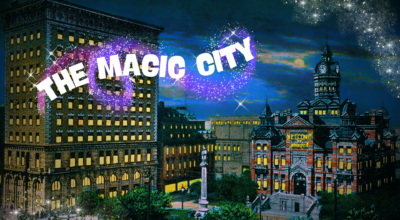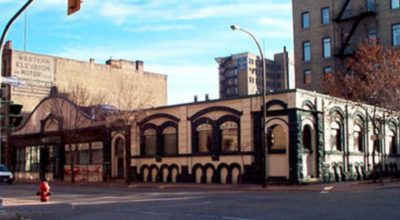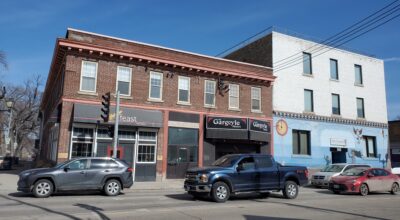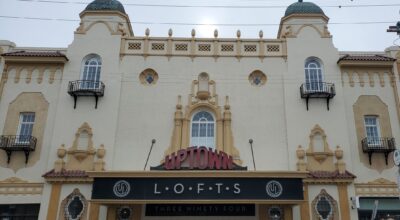
/ Blog
September 20, 2024
History in North East Winnipeg: Celebrating the Stories these Heritage Homes Tell
Historic homes are scattered throughout Winnipeg, holding our history in their foundations. In North East Winnipeg, these homes often go unnoticed, wedged between newer builds that are meant to blend in with their neighbours, or hosting small businesses on the traffic-heavy six-laned Henderson Highway.
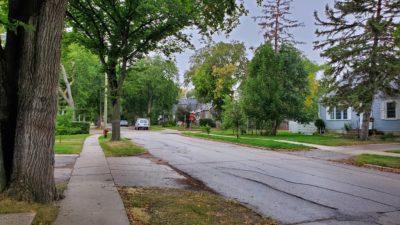
A pleasant street view in North Kildonan. Heritage Winnipeg.
Historic Hints in North East Winnipeg Heritage Sites
North East Winnipeg includes the areas of Elmwood, East Kildonan, and North Kildonan. Its history stretches farther back than the arrival of the Selkirk Settlers. To learn more about North East Winnipeg history, check out our blog post written by Jim Smith, Heritage Winnipeg Board Member and President of the North East Winnipeg Historical Society:
Some of the area’s homes reveal their historic significance in their position alone, such as 116 Fraser’s Grove. When you stand on the sidewalk and face this historic 1912 home, you’ll find that the door is not directly facing you, but is instead on the south-east side of the building. Built by Robert Tait (son-in-law of Fraser’s Grove namesake William Fraser), this home pre-dates the street on which it was built, and therefore faces away from the river, with its front door facing a neighbouring houses built decades later.
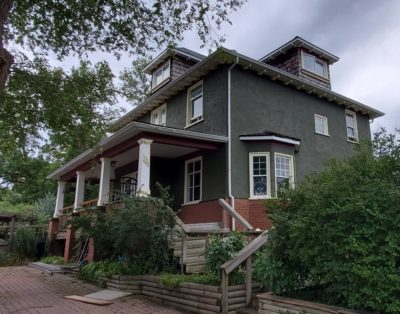
The historic home at 116 Fraser’s Grove. Heritage Winnipeg.
Parks, too, tell the history of the area. The recently renamed Matheson Millstones park at the corner of Edison Avenue and Henderson Highway is a small patch of green with a mighty history. The pair of millstones displayed in it belonged to one of the first mills in the Red River Colony. After being separated and applied to various uses in the neighbourhood, the millstones are now the canvas of a mosaic art piece that captures their importance. Through sites like this, North East Winnipeg’s history makes itself available to each passerby.
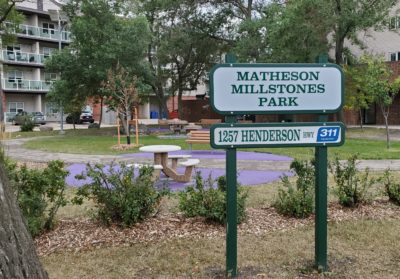
Matheson Millstones Park at 1275 Henderson Highway. Heritage Winnipeg.
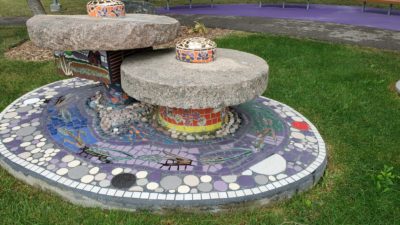
The millstones from the Matheson Grist Mill, which are now the centre of a mosaic art piece. Heritage Winnipeg.
What makes the historic homes of North East Winnipeg special is that they are, for the most part, well-loved and appreciated by their owners. Many serve as small business and studio space, such as the homes at 167 and 169 Henderson Highway, while others have stood the test of time as multiple generations of families trample through their halls.
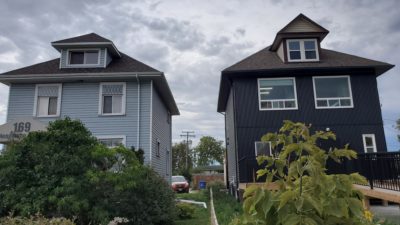
169 Henderson Highway (left), home to What You Knead Massage Therapy Supplies & Clinic; and 167 Henderson Highway (right), home to Confidant Studio and Central Medical Laboratories. Heritage Winnipeg.
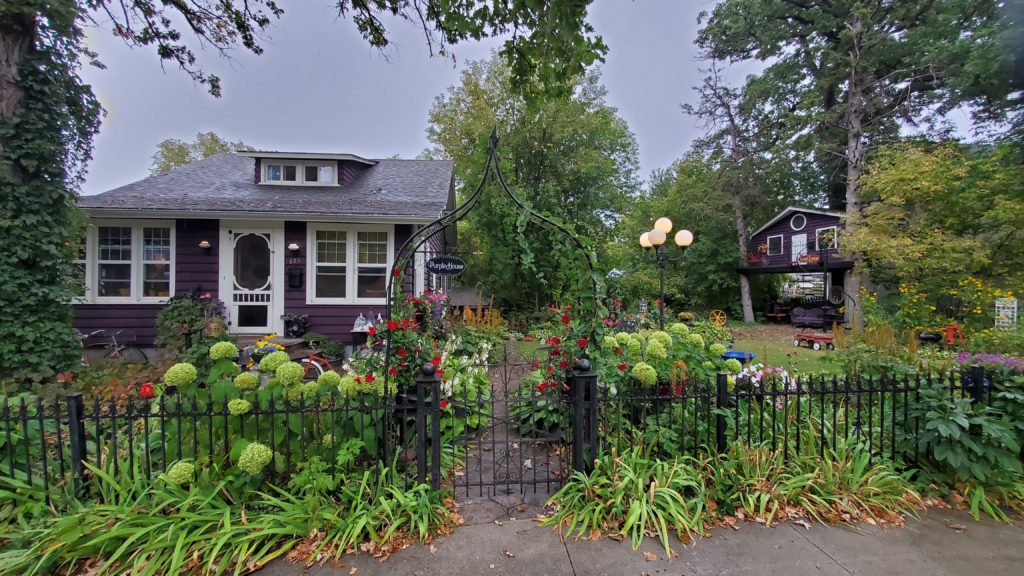
The home at 115 Linden Avenue, known as Purple House to locals. Heritage Winnipeg.
An Aubergine Abode: Laurie Goetz’ Purple House
At 115 Linden Avenue, there is a home that often catches the attention of people passing by. This is due, in part, to the abnormally large lot size, the luscious garden, and the adorable tree-house that ties the yard together. However, eyes are drawn, more often than not, to the home’s distinct hue.
The house now-known as Purple House was built in 1921. It has served many families since, with its abundance of bedrooms and playspace. Since 1997, it has been the home of Laurie Goetz, a mother and grandmother who has dedicated more than a third of her lifetime to the historic property.
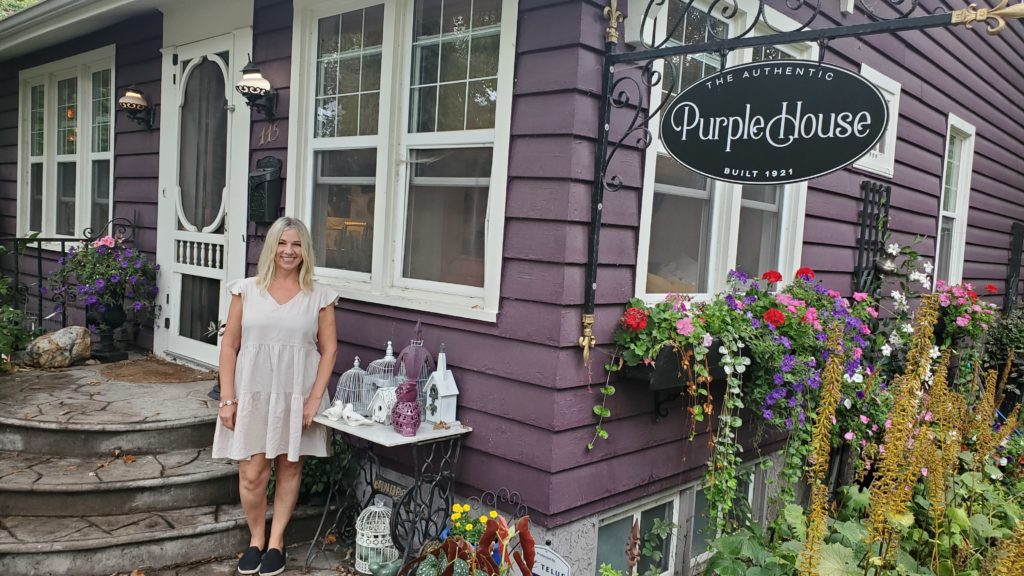
Laurie Goetz outside her home at 115 Linden Avenue. Heritage Winnipeg.
On a rainy day in September, 2024, a Heritage Winnipeg staff member headed northeast to visit Goetz at her home and get an inside scoop on the Purple House.
Like many historic home-owners, Goetz’s passion for the past developed early on in her life.
“I’ve always liked old. My mother volunteered at the thrift store and my earliest memories were tagging along with her. My dad would take me to yard sales before it was ever even a thing to do. We always collected things, much to the dismay of my mother. He’s always liked old and I think I’ve just carried on the love and the passion for, just, things, and unique things, quirky things.”
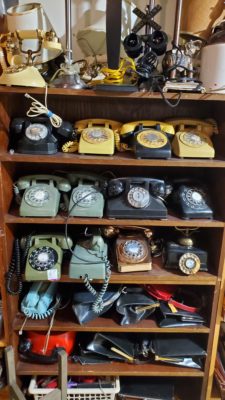
A bookshelf filled with rotary telephones, one of many things Goetz collects. Heritage Winnipeg.
This passion is present in Goetz’s decor. While she had previously filled her home with Victorian furnishings, it now holds a more cozy, Old World-style environment, with unique side-tables and a dark colour palette. Goetz’s procurement of collectibles is supported by her position as manager of the MCC Furniture and Thrift Store on Keewatin Street.
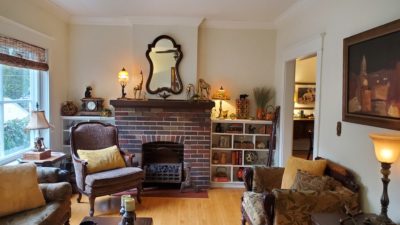
Goetz’ living room at 115 Linden Avnue. The electric brick fireplace at the end of the room is original to the 1921 home. Heritage Winnipeg.
“For me it was just pure fun, and that’s never left me. I’ve always liked older homes, older buildings. I like the longevity of it, I like the character, the structure of it.”
Goetz’s connection to North East Winnipeg also goes back to her childhood. After growing up in North Kildonan, she lived with her husband and four sons in a small house on Neil Avenue. As their family grew, they began to seek out a larger home that could accommodate all of their needs, with the intention of staying in the neighbourhood.
The first time Goetz visited 115 Linden Avenue was when the double-lot was first listed for $120,000 in 1990.
“When it came up for sale, we looked through the house and I fell in love with it only because of its uniqueness. I loved the double lot, when you’ve got four kids, that’s great…I had visions of my kids running through the rooms, playing through the attics, playing in the yard. I fell in love with it.”
Unfortunately, the house was taken off the market soon after. In the seven years that followed, Goetz and her family searched for another home, but none were quite as special as 115 Linden. After catching word that the house was once again for sale, Goetz approached the owners directly and made a private offer, which was accepted.
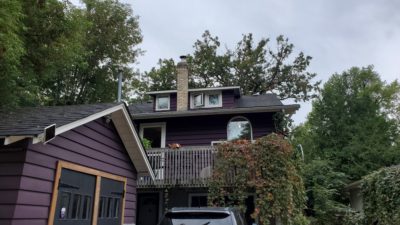
115 Linden Avenue, seen from the back lane. The garage in the bottom left corner is said to have once been a barn. Heritage Winnipeg.
Over the years, the house’s history slowly revealed itself. The Brookes’ family had lived there from the 1950s to 1990, and all four of their children have returned at different times to see the home, always welcomed by Goetz. Earlier history of the home was revealed through a chance encounter just 15 years ago.
“…there was a woman taking pictures outside, and I was working in the garden, and I’m not unfamiliar with people taking pictures. So I started a conversation, and she said ‘Oh, I’m so sorry, I hope you don’t mind if I take a few pictures. I have a special connection to this place, I grew up here.’ She would have been, about, in her seventies at that time, and I’m like ‘Oh my goodness! Come on in, tell me all about it!’ So, what [started out] being just a five-minute drop in to take a picture, she ended up being here for two hours. I brought her through the home, I brought her through the yard, and she had a memory of every nook and cranny of this place.”
That woman was Phyllis Erwin Ketcheson, daughter of Ralph Erwin. In 1931, Erwin moved to Winnipeg from New York City and created Salisbury House, a restaurant that grew into a popular chain, bringing American food-crazes to Western Canada. The Erwin Family lived in the house from 1940 until the 1950s.
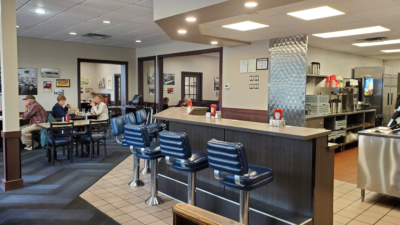
The Salisbury House location at 1277 Henderson Highway, one of many locations across the city. Heritage Winnipeg.
After visiting with Goetz, Ketcheson returned to her home in Ontario and began writing all of her memories from 115 Linden Avenue. A few months later, Goetz received these memories in the mail.
“Because there weren’t so many homes on the street built here, it was quite a landmark, back then, of this area. It was a bigger home, it was a triple lot… They had their own housekeeper, they had the grandma that lived with them and took care of the kids while they worked, they had a full time gardener… The upper garden was all a floral garden, and the lower garden was a vegetable garden. It was a party house, it was a fun house, it was just her and her brother that grew up here. She said her best memories were in this house. There was always life, always parties, always kids. Because they had a restaurant, they also had a commercial freezer in the basement for ice cream, so if they had a birthday party, all the neighbourhood kids would come and they would be having Nips and ice cream and it was just a party.”
“Nips” were what Erwin named his famous hamburgers, still served at the many Salisbury House locations throughout Winnipeg and beyond.
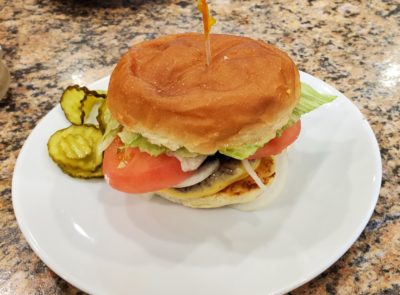
The “Mr. Big Nip” from Salisbury House, one of many variations of Erwin’s original “Nip” still served at the restaurant chain. Heritage Winnipeg.
The Erwin’s generosity extended beyond neighbourhood barbecues. During the Second World War, the family opened up their home to airmen who were training at a base in Gimli to fight overseas. In her letter, Phyllis recalled the bunks in the basement where the men would sleep, and the music, laughter, and fun that they brought into the home.
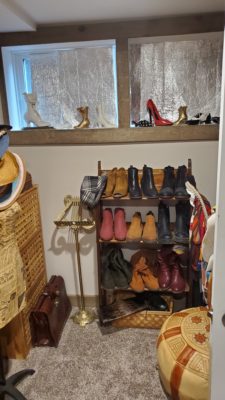
The small room in the basement of 115 Linden Avenue, where the Erwin family once hosted Airmen. The wall seen here was where the bunk beds once sat. Heritage Winnipeg.
“Phyllis is still alive, she’s in her 90s now, and I talked to her a few months ago and I’ll probably give her a call soon. Everytime something like this comes up, I always call and say, ‘Phyllis, they’re doing another feature on our house.’ She really appreciates having that connection, and I’m so grateful that I happened to be out that day and met her when I did. The letter she wrote, I passed it to a few neighbours, and suddenly [the North East Winnipeg Historical Society] got a hold of it. It’s all timing, and kind of magic, how that all happened.”
By the time the Goetz’ came into ownership of the home, it had certainly seen better days. That was no discouragement to Goetz and her family, who immediately began work on major renovations.
“The house itself just needed a lot of work. Foundation was the first thing we had worked on. My ex-husband, at the time, he was a handyman so we had developed the kitchen… Always trying to maintain the integrity of the place. Lots of replacing, but beautiful things to rebuild on. It needed work but all the bones were there, all the character was there.
There was more we would have done at the time if we could afford it, it’s just that it was a financial work in progress. One of the big things that we did is the concrete sidewalk, which has held up really good over the years. I would have liked to extend that into the backyard to the parking pad but concrete was very expensive back then.”
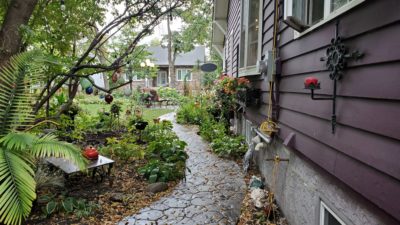
The concrete paved walkway along 115 Linden Avenue. Heritage Winnipeg.
Years later, Goetz’s connection to her home continues to grow as she incorporates her own personality into her decor.
“This has been everything that I dreamed of for this place. I mean, there’s still stuff that I would like to add at some point, but the house is more than I need. All my sons have moved out and grown up. I lived with five guys, my ex-husband and my boys, so there just wasn’t enough room. They’re all big people so they just took up a lot of space, so when they started slowly moving out, I just extended my own room. It’s like a doll house.
It’s sort of like this is my palette, so I can paint and play. The best days of my life were raising my kids, but I’m really enjoying this stage too, just having a little bit more time to explore.”
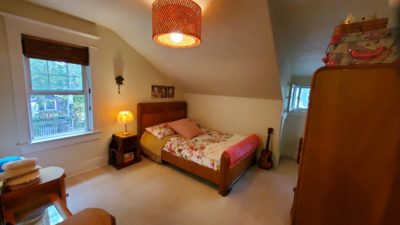
An upstairs bedroom at 115 Linden Avenue, prepared for regular visits from Goetz’ grandchildren. Heritage Winnipeg.
In the summer months, Goetz can be found spending most of her time in her garden.
“I had a garden in my old home, and so when I saw this place, it’s a huge playground. Because it was left unattended, I had to start from scratch. I just built it up, I brought some of my cuttings from my old place and transplanted a lot of things and just gathered things from the neighbourhood. Within the first two years, we fixed the foundation, did the sidewalk, painted the house purple, and I threw in a garden, and that was solely my thing. I had a whole lot more sun then, so the garden flourished very quickly and now the trees have really grown and changed that dynamic. It was like, once I had that put in and painted the house purple, people would be walking by and going “We didn’t know this house existed”, because it was all kind of overgrown, and it was just another house along the strip. I think within my second year here, someone had entered me in the Take Pride Winnipeg contest and I won first place, and I’m like, ‘Oh, I didn’t even try!’ ”
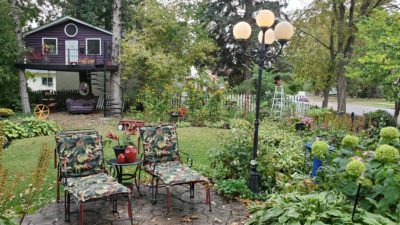
The front garden at 115 Linden Avenue, with the matching purple treehouse in the background. Heritage Winnipeg.
For a number of years, Take Pride Winnipeg hosted a “Winnipeg in Bloom” contest, asking homeowners to share their front yard gardens for a chance to win prizes.
“The next year I made the garden a bit bigger, then a bit bigger, put a strip along the fence which is now all full with garden, and I just built, every year I just went bigger and bigger. Now, as I’m growing older and maintaining it, I created a monster (laughs). Every year I was winning something, and giving garden tours and fundraiser tours and things like that. I never went looking for that, it always kind of came, people found me. It was kind of discovered.”
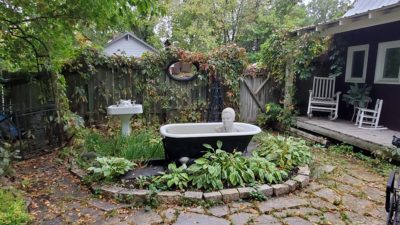
The back garden at 115 Linden Avenue, with matching purple shed on the right. Heritage Winnipeg.
All properties, old and new, require consistent work to make sure everything continues to function the way it should.
“It’s over 100 years old, so there’s always something. When I moved in here, 27 years ago, we put in new windows, got a new roof and all those things. Suddenly those things are old now, thirty years later. Maintenance is always a big deal. Lots of trees, I gotta worry that the roots don’t get into the waterline, all those kinds of things. It’s an old house, it’s shifting. Some of the trees are getting out of control and some of them are dying.”
When you have lived in one place for as long as Goetz has, you are bound to notice how things change around you and neighborhood dynamics shift.
“I moved in and I was the young kid on the block. I had these four kids, and I had all this energy and ambition, and always running around the yard playing. I had elderly neighbours, lovely lovely people. I’d take my kids off to school at Angus McKay, and I’d talk over the fence with [my neighbour] and she’d say, ‘It just seems like yesterday that it was my kids going to school, now I see you take your kids to school,’ and I went, ‘oh, that’s a lifetime away for me,’ and BANG – I am now that elderly person watching all these other young families taking their kids to school.
There’s a few infills coming up. I love the newer homes coming up, I mean, if the house needs to be torn down it needs to be torn down. The people building them are really, for the most part, building them conducive to an older neighbourhood. I love that, but these quick ones that just go up, the infill ones, it changes the look, it changes the character. It’s sentimental for me. Some people like that look, some people welcome it, I’m kind of on the fence about it.”
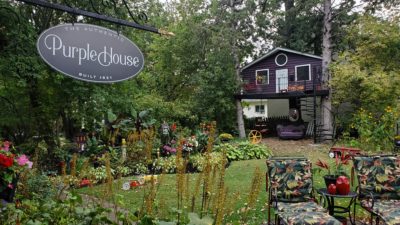
A front view of the garden at 115 Linden Avenue, with a recently mounted “Purple House” sign on the left and treehouse on the right. Heritage Winnipeg.
Finally, we asked Goetz about how the house became Purple House.
“When I first painted the house purple, the neighbourhood was in an uproar. They didn’t know what was coming. The house was white, I hired a painter, he put a really good oil-based primer on it. It was a tinted primer so it was a deep grey. He primered the whole house, all the neighbours are coming out – and remember, I’m new to the neighbourhood – ‘what’s the new kid doing now?’ He painted the whole house in the beautiful grey primer and everyone’s saying, ‘Oh, that’s beautiful! I love that!’ and I’m like, ‘Yeah that’s not the colour.’
I ordered the paint, and I picked up the paint and brought it to him, and he opened it up – and when the paint is wet it’s always brighter than when it dries – and it was this awful fluorescent pink. He’s like, ‘Lady, it’s not too late to change your mind. It’s just paint.’ and I said, ‘Well, if it’s just paint, slap it on.’ and he’s like, ‘Oh, I worked really hard on this. Don’t make me finish it like this, please.’ and I’m like, ‘Just put it up. Let’s see what it looks like.’ By the time he was finished one wall and put on the second coat, people are coming around going, ‘What are you doing?’ and I’m like ‘Just wait, it’s just paint!’”
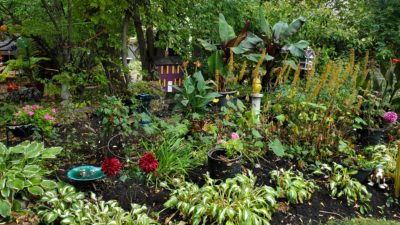
The front garden at 115 Linden Avenue, decorated with a dollhouse painted in the same colour as the house. Heritage Winnipeg.
“Then, people came around, and they said, ‘Look at this purple house!’ and I said, ‘It’s aubergine. It’s an eggplant colour, it’s aubergine.’ I just gave in. Everyone said ‘Purple House’, they kept saying, ‘Look at the purple house!’ so, I became the purple house. That wasn’t my goal, to become the purple house.”
Even though she is now the sole resident, it is clear that Goetz has no intention of leaving Purple House anytime soon.
“My heart’s in this place and I would like to keep it up as long as possible. I know that’s not a reality, as I get older I realize that more and more. I play up in the playhouse a lot with the grandkids, and when I had four boys, we just had a ladder that we went up and down or climbed the tree to get up there. Then, a few years ago, I found this spiral staircase on Marketplace or Kijiji, and I thought ‘That’s exactly what I need.’ I’m so grateful, because it’s so much easier to get up and down, and I’ve got these little grandchildren that can go up the staircase, just a fun little feature. I created [the treehouse] just to make it look like a mini version of my home.”
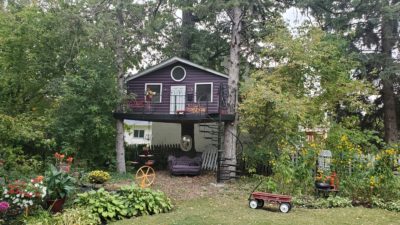
The treehouse at 115 Linden Avenue, which is painted to match the historic home. Heritage Winnipeg.
“I’ve got a whole lot more dreams. Whether I physically and financially can afford it, that’s another thing, but it doesn’t hurt to stop dreaming.”
The home continues to be filled with laughter, joy, and food, as Goetz welcomes a continuous flow of guests through her door. With visits from her eight grandchildren, to weekly tuesday-night potlucks with friends, to pleasant conversations with passersby, there’s never a dull moment in Purple House.
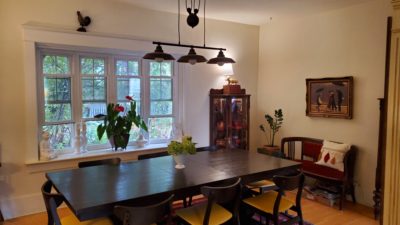
The dining room at 115 Linden Avenue, with a large bay window that overlooks the garden. Heritage Winnipeg.
“I get real joy when people appreciate it. I hear it everyday when I’m out, ‘I love your house, I love your garden.’ For me, this is always something that I’ve done for myself. The garden was sort of a way of finding some peace and some healing, and so when other people experience the same, then I feel I have arrived.”
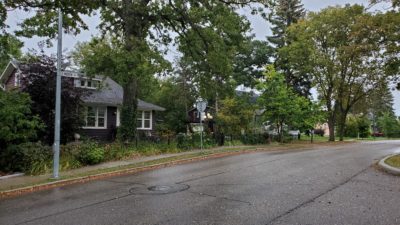
A view of 115 Linden Avenue from the street. Heritage Winnipeg.
Use the arrows on the gallery below to view more images of Laurie Goetz’ Purple House and garden.
Haunting History on Henderson Highway: The Former Home of Dr. T.G. Hamilton
Not every home is as lucky as Purple House. Less than four kilometers away, Hamilton House (185 Henderson Highway) is once again up for sale.
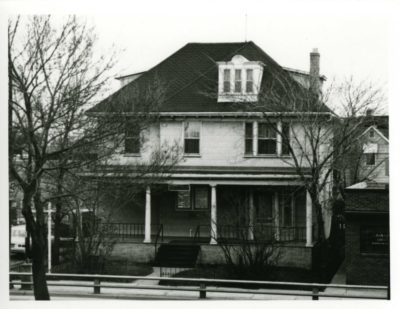
Hamilton House at 185 Henderson Highway, date unknown. Permission of use granted. (University of Manitoba Archives & Special Collections, Hamilton Family fonds, PC 12, A1979-041, Box 11, Folder 18, Item 1 )
The home is named for its prominent owner, Dr. Thomas Glendenning Hamilton, who lived in the home from 1910 until his early death in 1935. Dr. Hamilton played many roles in Winnipeg’s history. As a member of the Liberal Party, he represented Elmwood in the Manitoba Legislative Assembly from 1915 to 1920, advocating for women’s voting rights, workers rights, and restrictions on the use of opiates and coca-leaf drugs. An important member of the medical community, Dr. Hamilton was president of the Manitoba Medical Association, and later, the Canadian Medical Association. Despite these many accomplishments, Dr. Hamilton’s biggest claim to fame haunts his legacy: researching “psychic phenomena” (Dictionary of Canadian Biography).
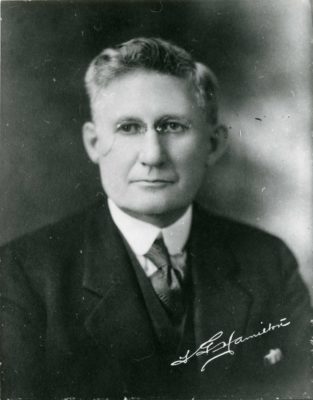
Dr. Thomas Glendenning Hamilton, photo taken 1930. Permission of use granted. (University of Manitoba Archives & Special Collections, Hamilton Family fonds, PC 12, A1979-041, Box 11, Folder 14, Item 4 )
After the First World War, North America saw a rise in spiritualism. Those who had lost loved ones to the war were desperate to make contact with them in whatever way possible, and the question of where we go when we die became ever present in daily life. In 1918, Dr. Hamilton became a part of an international set of respected scientists who sought to answer this burning question. Dr. Hamilton, assisted by his wife Lillian who worked as a nurse, experimented with telepathy, ectoplasm, and communicating with the deceased.
Over 1000 seances were held in Hamilton House, in a special seance room, with the best available cameras capturing the paranormal experiences of their many guests. During this time, seances were popular among many leading citizens, including lawyers and doctors. The Hamilton family’s seances attracted international attention as well, with famed author Sir Arthur Conan Doyle as one of their participants. After Dr. Hamilton’s death, Lillian continued the practice. For more photos from the Hamilton family, visit the University of Manitoba Archives Hamilton Family fonds.
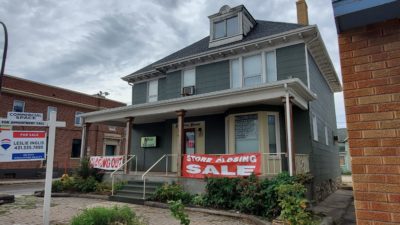
The historic Hamilton House at 185 Henderson Highway, which is currently for sale. Heritage Winnipeg.
Today, this historic home is haunted by much more threatening spirits; the instability of small businesses and the ever-swinging pendulum of the corporate wrecking ball. In 2022, it became the new home of Gags Unlimited, a party supply and costume store that has operated since 1980. Only two years later, the business is now closing for good and the home is back on the market. As a property with no municipal heritage designation, Hamilton House is at risk of demolition as a desirable location for infill housing. In the best case scenario, the next owner of Hamilton House will recognize its historic value and will nominate the home for heritage designation. Only time, and perhaps a Ouija board, will reveal the fate of Hamilton House.
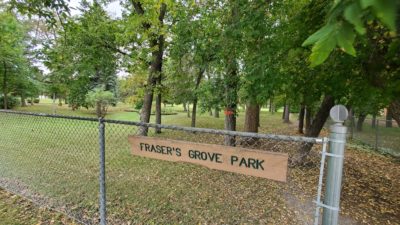
Fraser’s Grove Park in North Kildonan. Heritage Winnipeg.
The Future of Heritage Properties in North East Winnipeg
The neighbourhoods within North East Winnipeg vary greatly in their disposition. Walkable riverside areas invite pedestrians to take their time and observe the homes and gardens that fill the space. The pleasant and winding roads encourage drivers to slow down and appreciate the scenic route. Meanwhile, cars zip right past historic homes on Henderson Highway, overlooking small businesses in their rush to get from point a to point b. As part of Heritage Winnipeg’s mission, we aim to bring attention to at-risk properties like Hamilton House, and to celebrate homeowners like Laurie Goetz who devote decades to making a house a home!
Thank you to Laurie Goetz for inviting Heritage Winnipeg into your home. Thank you to Jim Smith and the North East Winnipeg Historical Society for providing historical resources. Thank you to the University of Manitoba Archives for providing access and permission to use archival photographs.
THANK YOU TO THE SPONSOR OF THIS BLOG POST:

Heritage Winnipeg
SOURCES:
Geary, Aidan. "Ectoplasm on the Prairies" CBC News Interactive, 28 October 2018
Historic Hamilton House Website
North East Winnipeg Historical Society, "North East Winnipeg Area History Volume 1", 2017
North East Winnipeg Historical Society, "North East Winnipeg Area History Volume 2", 2018.
"Our History, Your Sals" Salisbury House Website.





